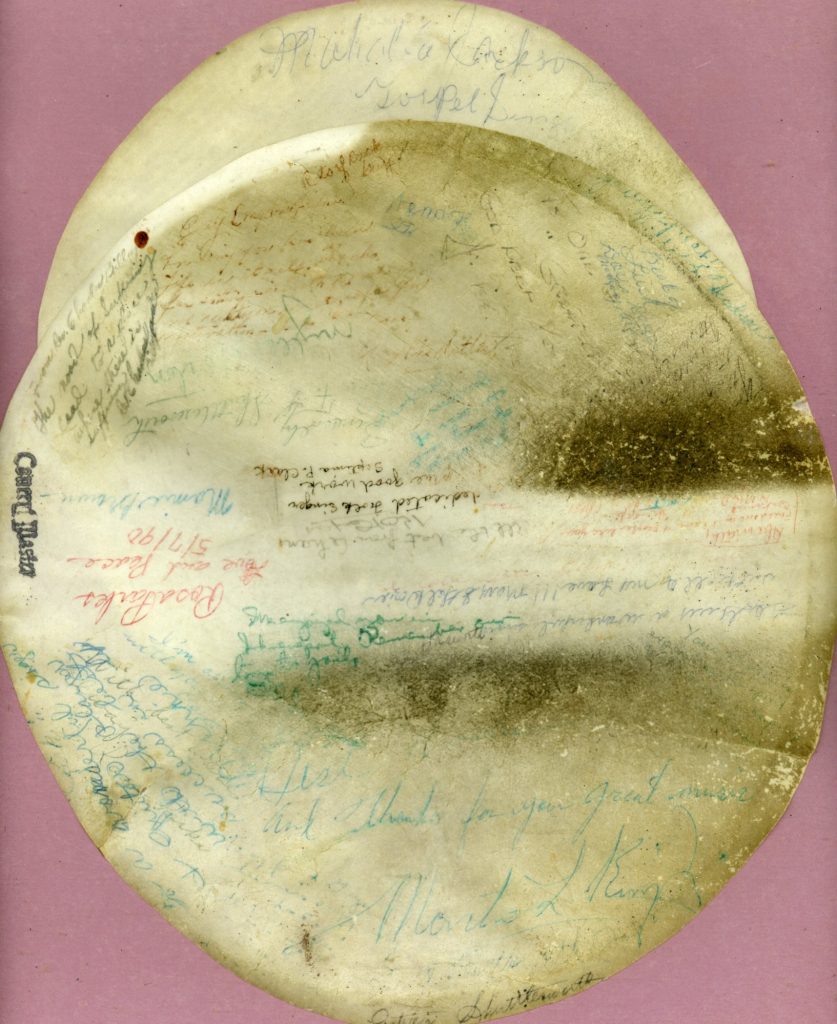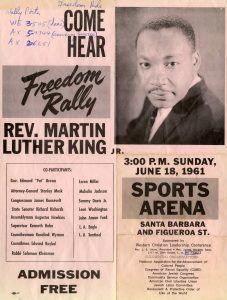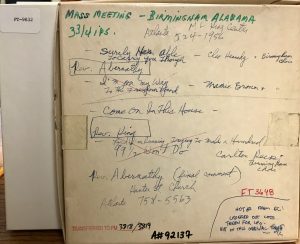Below is a guest post from Phillip MacDonald (pictured below), who is going into his second year at UNC’s School of Information Science’s Master of Science in Library Science (SILS) program. Before attending SILS, Phillip received a masters in Folklore at the UNC and started his interest in archives and special collection by working on the Frank Clyde Brown’s field recordings at Duke Libraries. After graduation, Phillip hopes to work in archives and special collections. Over this past summer, Phillip helped process over 1,000 videotapes found in SFC’s Highlander Research and Education Center Collection (#20361) for his program’s field experience. At SILS, students can gain professional practice in an information organization for class credit. Phillip hoped to specifically work with audiovisual in an archival setting for his field experience and found working at SFC over the summer as “an ideal place to do so.”

The Southern Folklife Collection has been housing analog audio discs from the Highlander Research and Education Center since the early 2000s. These materials include acetate discs and transcription discs of radio programs, recorded songs, and voices of leaders from the civil rights movement, including Esau Jenkins, Septima Clark, Rosa Parks, Miles Horton, and Zilphia Horton. Thanks to a grant from the Andrew W. Mellon Foundation and the research interests of past Wilson research fellow, Genevieve Hay, many of the acetate discs are accessible and streaming on the Highlander Research and Education Center Collection (#20361) finding aid.
In 1971 the Highlander Folk School was re-chartered as the Highlander Research and Education Center. Before the name change, Highlander was best known as an institution for working towards labor union mobilization and Citizenship Schools to help African Americans gain access to voting before the Voting Rights Act of 1965. The Highlander Folk School also contributed to music’s pivotal role in the civil rights movement. In the years after the renaming, the center continued to focus on labor organizing. In Appalachia, the center focused on the anti-strip mining and worker safety. On a global scale, Highlander worked on environmental and labor issues around the world. A vast amount of these efforts is documented in the new addition of Highlander Research and Education Center videos.
In March of this year, arsonists set the center’s main office building ablaze. The center later announced on their Facebook page that they found a symbol associated with the white power movement in the parking lot next to the rubble of the building. Soon after the fire, the center contacted Steve Weiss, SFC’s curator, to pick up more audiovisual materials as soon as possible. Weiss and former SFC Assistant, Aaron Smithers, arrived the next day.
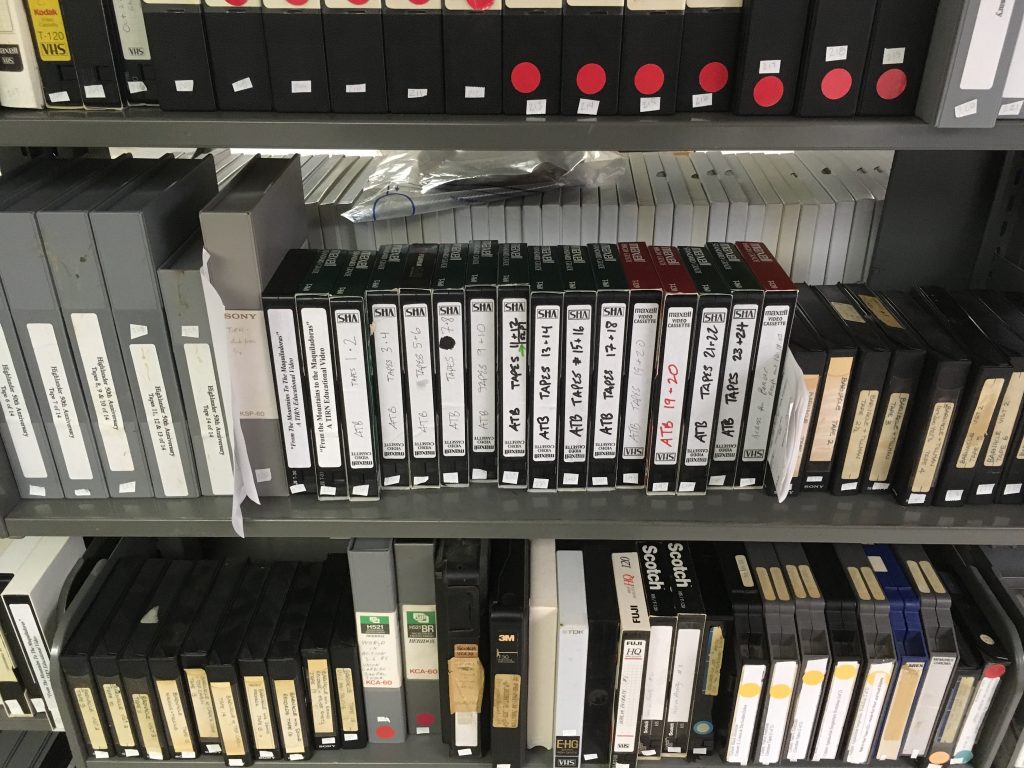
This new addition to the Highlander’s collection consists of over 1,000 items, including 16mm films and various analog audio and video formats, but the bulk of the incoming items were videos used at the center’s library. The video addition contains materials that speak to the center’s labor support efforts through workshops and conferences on the Bhopal disaster, North Carolina farmworkers, environmental health, furniture workers, women’s health and safety, community-based economic development, and many more.
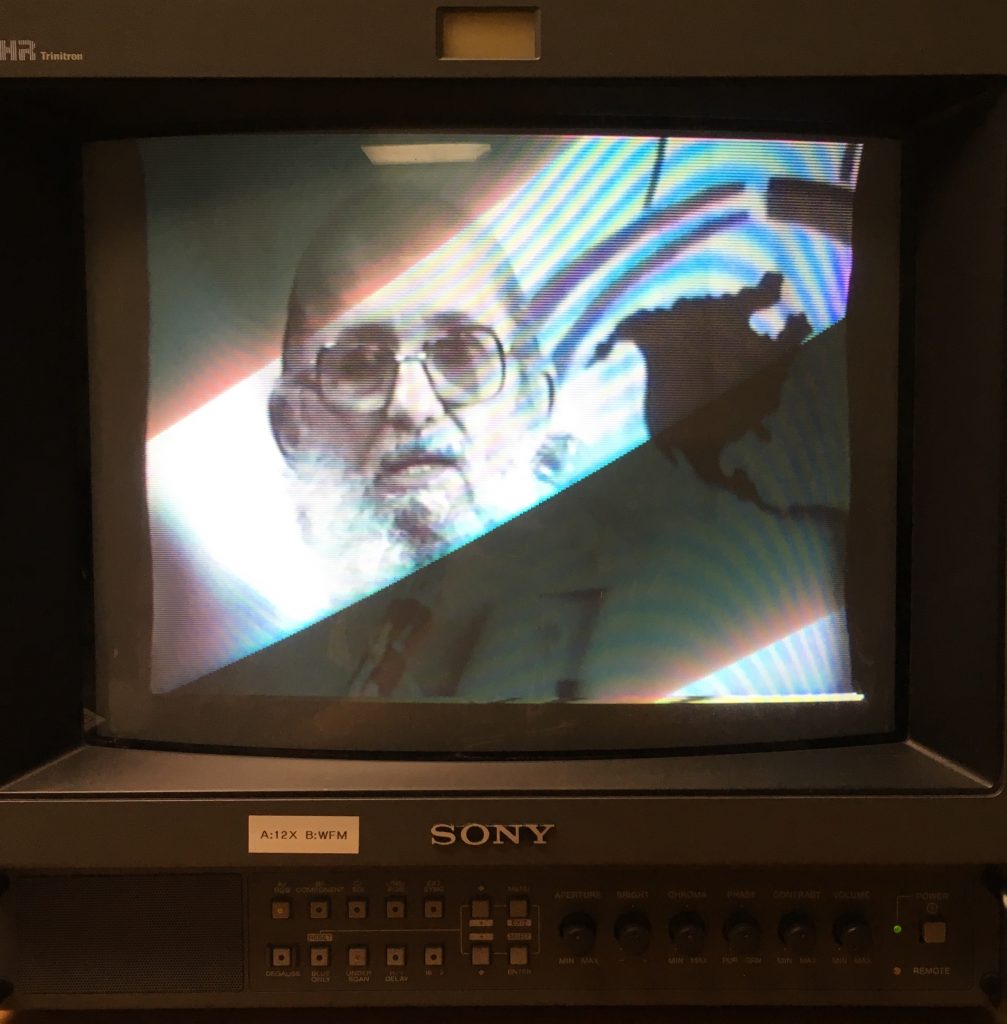
In regards to the center’s efforts on labor and social justice organizing throughout Latin America, the addition contains numerous Spanish and bilingual materials dealing with Chiapas textiles, political unrest, higher wages, the Aguas Blancas massacre, and more. Additionally, this video collection documents the Highlander Research and Education Center’s history- containing raw and edited footage of the center’s numerous workshops, their 50th and 75th-anniversary celebrations, interviews with Myles Horton, and his memorial.
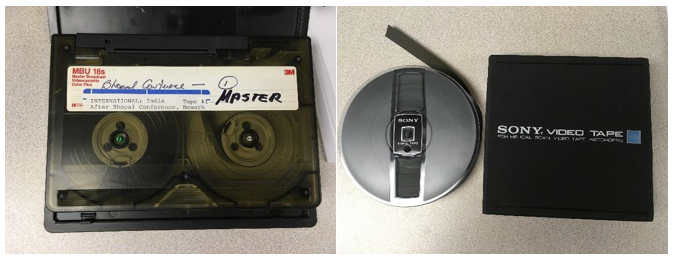
This addition also represents numerous video formats. The most ubiquitous video format is probably VHS, which is here in abundance, but the addition also contains U-Matic, U-Matic SP, DVCAM, and 1/2 inch open reel video. This variety of video formats document how long the Highlander Center has been creating media. Overall this collection contains a plethora of information on social justice and labor organizing from the latter half of the twentieth century.
~~~~~~~~~~~~~~~~~~~~~
THANK YOU Phillip for your many contributions in processing the videotapes found in the Highlander Research and Education Center Collection – your passion and hard work will undoubtedly aid researchers for years to come. And a special shout out to AV Assistant, Melanie Meents, who also assisted with the project. She’s currently hard at work processing additional audio and film elements found in the collection. Both Phillip and Melanie’s inventories of AV materials will soon be live on the Highlander Research and Education Center Collection (#20361) finding aid – stay tuned!
Tag: mellonsfc
Joan Fenton and Documenting Southern Tall Tales
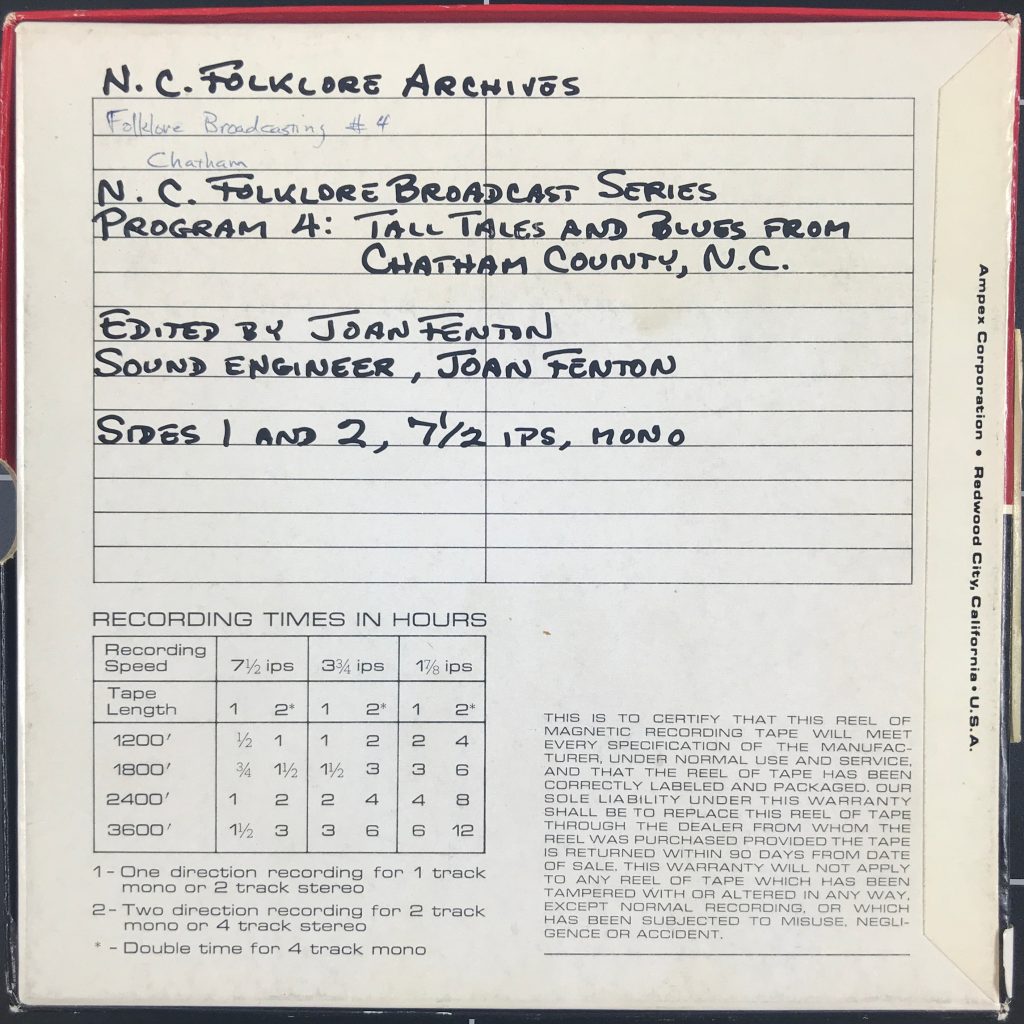
Joan Fenton was a folklorist and performer who earned a master’s degree in folklore from the University of North Carolina Chapel Hill. The sound recordings in this collection include interviews, oral histories, songs, and tall tales from artists and musicians throughout North Carolina, South Carolina, West Virginia, and Louisiana. She also recorded a gospel group at an African American church service near Princeton, West Virginia. Those recordings include sermons and testimonies from members of the congregation. Thanks to our generous grant from the Andrew W. Mellon Foundation, the audio items in the Fenton collection are available and streaming online from the finding aid.
Fenton wrote the thesis for her master’s on Howard Cotten, a black tall-tale teller from North Carolina. These recordings include songs, tales, and interviews with Mr. Cotten and others like Laura Lea, a quilter from Chatham County, NC and Cotton’s friend and cousin, Willie Brooks. In the interviews, Cotten sings and tells stories about hitchhiking, ghosts, possum hunting, talking dogs, seeing a train for the first time and more (FT-20015/890-908).
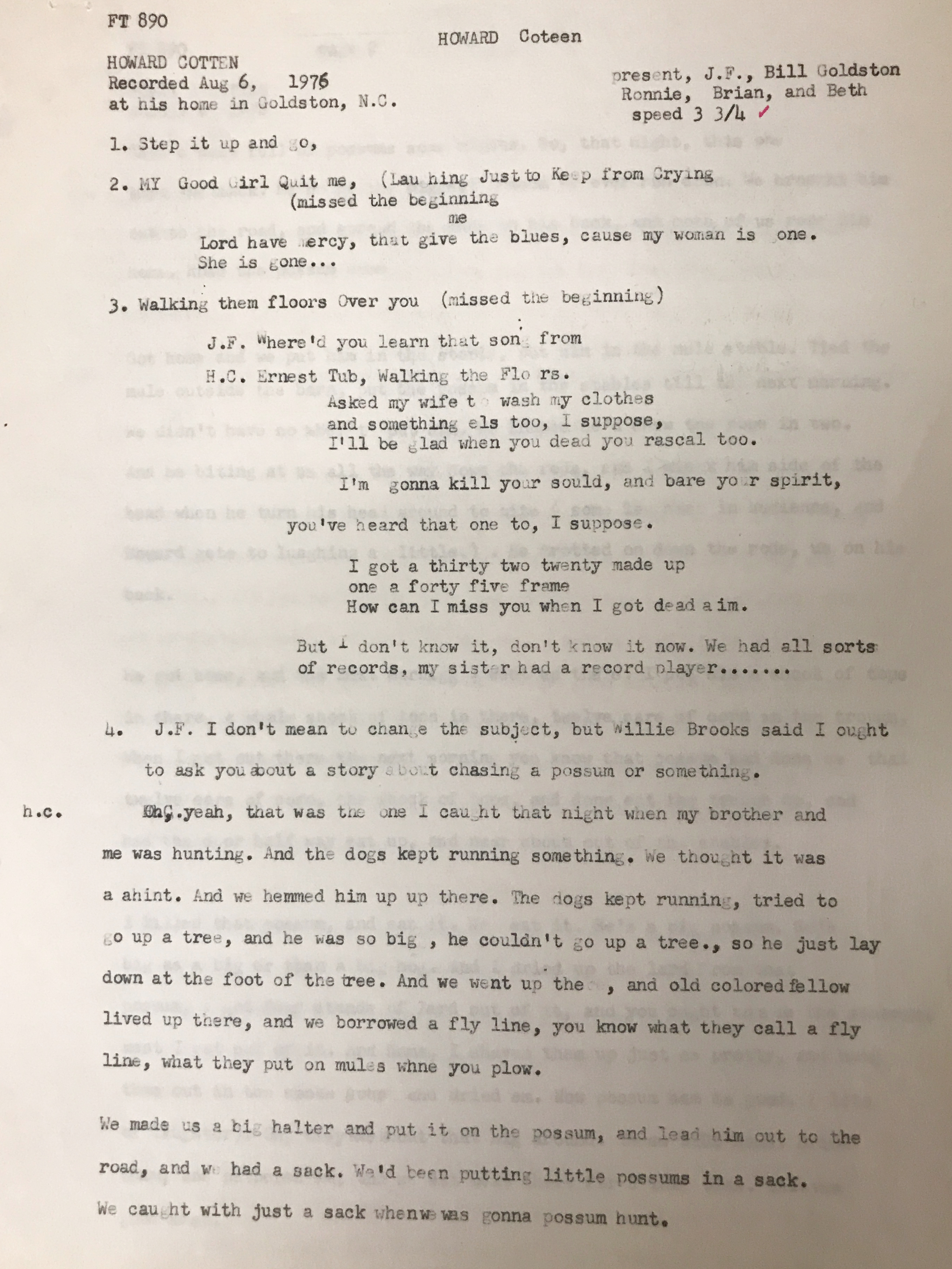
The above interview is streaming through the finding aid.
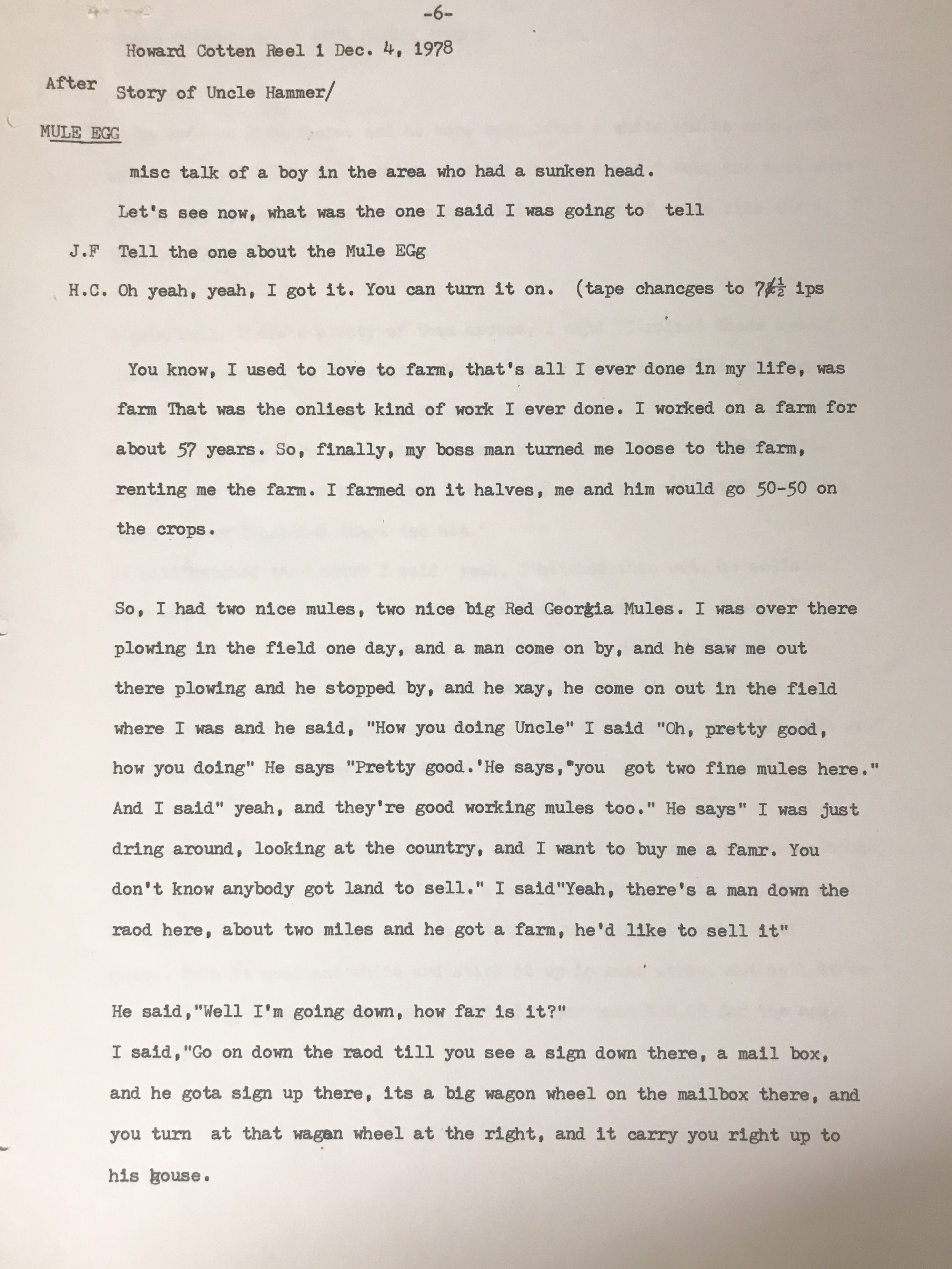
Fenton was the editor and sound engineer on an episode of the UNC Folklore Broadcast featuring a recording of Howard Cotten and Willie Brooks telling tall tales or lies, as Fenton calls them in the introduction to the broadcast, along with blues songs and additional explanation and commentary in between songs and stories.
Some of my favorite audio recordings in the collection are from the John Henry Folk Festival in 1978. She gathered many interviews from this festival with musicians and attendees. She asks questions about the folk festival, why people attend this specific festival, what the blues mean to them, the importance of gospel music at a festival such as the John Henry festival, and many others. The answers she gets to her questions are part of larger conversations that are still relevant today. Some of the folks interviewed include Sparky Rucker, Ron Wilkerson, Hazel Dickens, Phyllis Boren, The Badgett Sisters, and Pigmeat Jarrett.
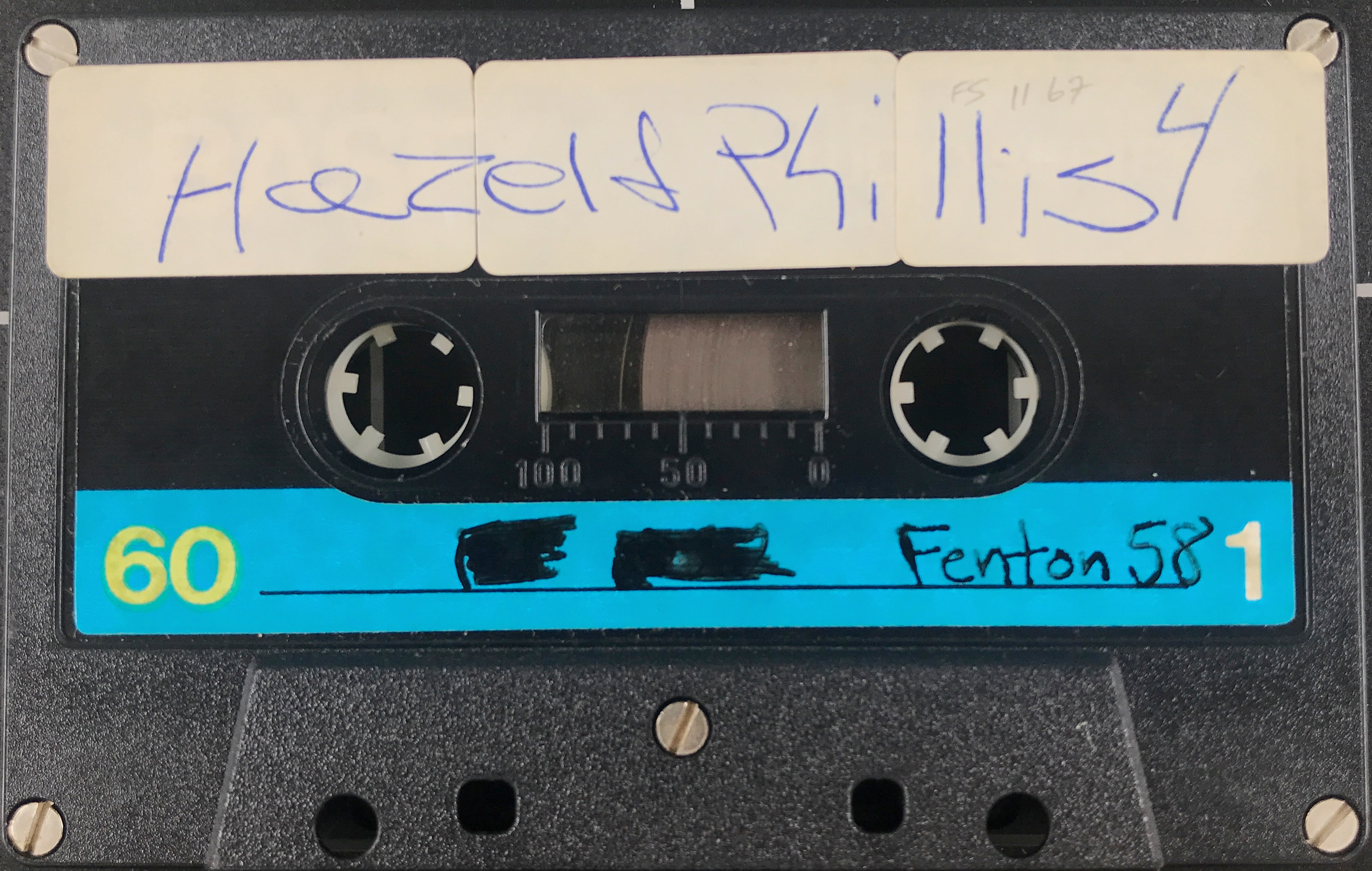
Finally, Fenton took part in video documentation of blues musicians including videos of Willie Trice. Fenton is described as recording the videos. They are also accessible and streaming in the Southern Folklife Collection Moving Image Materials finding aid. (VOR-30002/110-111).
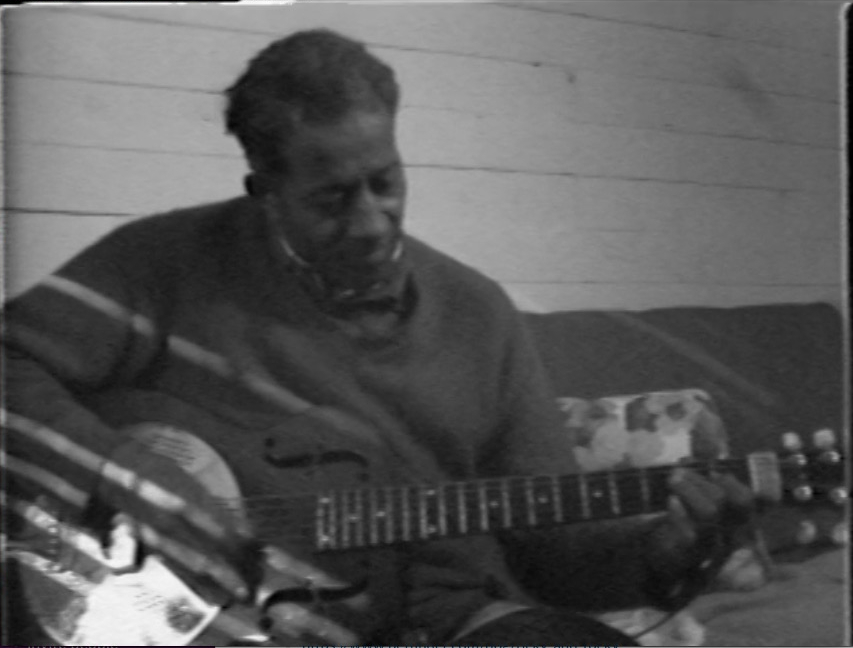
Fenton resides in Charlottesville, VA where she owns 9 retail stores. She is one of the organizers of Blues Week at the Augusta Heritage Workshop in Elkins, WV.
Congratulations Bill Ferris! "Voices of Mississippi" box set wins two Grammys

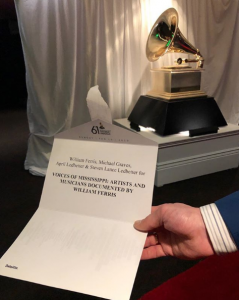
We were thrilled to see our colleague, collaborator, and constant source of inspiration Dr. William R. Ferris honored with two Grammy awards at yesterday’s ceremony for the box set Voices of Mississippi: Artists and Musicians Documented by William Ferris. Ferris, along with compilation producers April Ledbetter and Lance Ledbetter of record label Dust-to-Digital and mastering engineer, Michael Graves, received Grammy recognition for “Best Historical Album” and Ferris, along with David Evans, also won for “Best Album Notes.” Materials for the box set come from the William R. Ferris Collection (20367) that is part of the Southern Folklife Collection at Wilson Special Collections Library here in the University Libraries at UNC Chapel Hill.
Over the past decade, archivists, audio engineers, photo technicians, students, researchers, and Bill Ferris himself have worked to arrange, describe, and digitize the more than 250,000 sound recordings, photographs, videos, films, papers, and ephemera that make up the William R. Ferris Collection. Thanks to the dedicated teams at Wilson Library and with support from the National Endowment for the Humanities and the Andrew W. Mellon Foundation, a few thousand of these sound recordings, videos, films, and photos are digitized and can be streamed or viewed in their entirety online. It’s exciting to think of listeners hearing a track on Voices of Mississippi and then be able to find that recording and many others in the William R. Ferris Collection (20367) finding aid. They may want to hear more of Lovey Williams, or to hear James “Son” Thomas playing in a juke joint, or Fannie Bell Chapman singing in her back yard
few thousand of these sound recordings, videos, films, and photos are digitized and can be streamed or viewed in their entirety online. It’s exciting to think of listeners hearing a track on Voices of Mississippi and then be able to find that recording and many others in the William R. Ferris Collection (20367) finding aid. They may want to hear more of Lovey Williams, or to hear James “Son” Thomas playing in a juke joint, or Fannie Bell Chapman singing in her back yard
| SFC Audio Open Reel FT-20367/10256 |
Ferris Folklore Tapes: James “Son” Thomas, Shelby Brown. FFT 41-69-5/24 |
| SFC Audio Open Reel FT-20367/11175 |
Lovey Williams blues |
| SFC Audio Open Reel FT-20367/9958 |
Fannie Bell Chapman: Singing in back yard, 10 August 1973. FCT 68-73-8/10 |
These examples are the smallest sample of the opportunities available to interested researchers and listeners and explorers of the rich cultural history and beautiful human artistry documented by Dr. Ferris. B. B. King recorded at home, extensive conversations with brilliant minds like Eudora Welty, Walker Evans, Alice Walker, tales told by Ray Lum and Victor Bob and many, many others are streaming online. There are also thousands of photographs digitized and searchable through the William R. Ferris Collection Digital Photographs.

It is exciting to see recognition for the work that Dr. Ferris dedicated his life to. It is also exciting to see recognition for the people of Mississippi who, in Bill’s words, “so courageously shared their stories.”
That list is long, but to start, thanks to Scott Dunbar, Lovey Williams, Walter Lee Hood, Tom Dumas, Mississippi Fred McDowell, Wash Heron, Wallace “Pine-Top” Johnson, Sonny Boy Watson, Mary Alice McGowan, The Southland Hummingbirds, Liddle Hines, Mary and Amanda Gordon, Reverend Isaac Thomas, Bobby Rush, Barry Hannah, Joe Cooper, Joe Skillet, Shelby “Poppa Jazz” Brown, Pete Seeger, Charles Seeger, Imamu Amiri Baraka, Victor Bobb, Cleanth Brooks, Fannie Bell Chapman, Edith Clark, Leon “Peck” Clark, Bill Clinton,
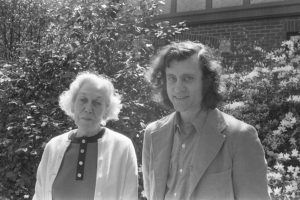
Hillary Rodham Clinton, Willie Dixon, John Dollard, Louis Dotson, Walker Evans, Marcie Cohen Ferris, Shelby Foote, Ernest J. Gaines, Allen Ginsberg, Theora Hamblett,Bessie Jones, B.B. King, Alan Lomax, Ray Lum, Arthur Miller, Ethel Wright Mohamed, Ola Belle Reed, Harry Smith, James “Son” Thomas, Othar Turner, Alice Walker, Pecolia Warner, Robert Penn Warren, Eudora Welty, and members of the Rose Hill Baptist Church in Vicksburg, Miss.
Our sincerest thanks and gratitude to all of these individuals and many more unnamed, for their willingness to share parts of their lives with Dr. Ferris and then with all of us. But once more, many congratulations to our friend Bill Ferris and his fellow award winners Lance, April, Michael, and David. We can’t wait to hear what stories you will turn up next.
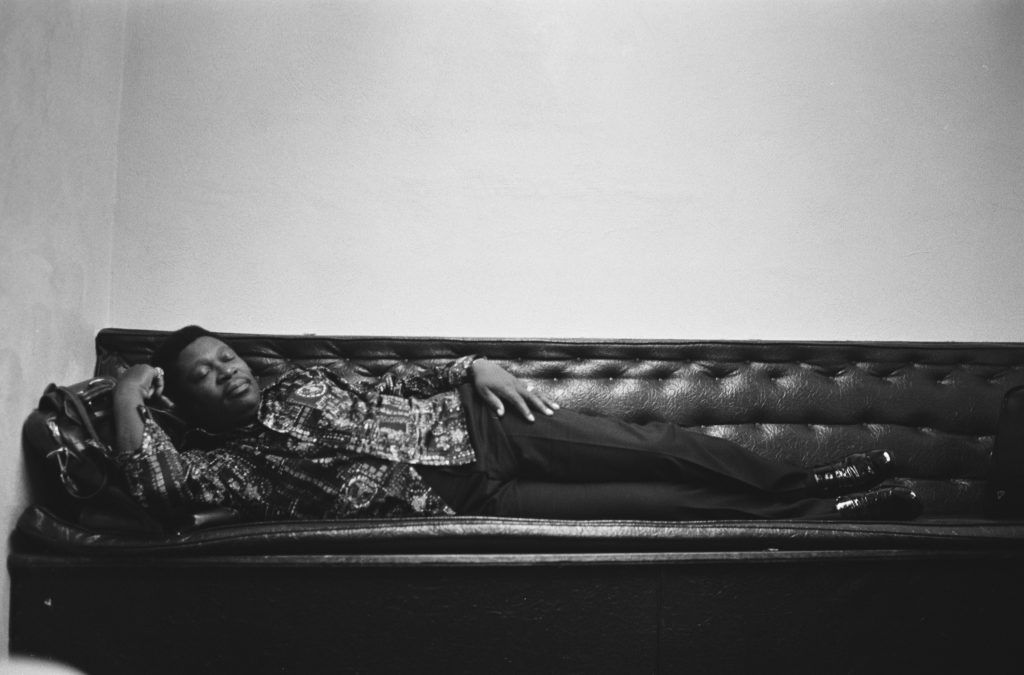
First Impressions: Arhoolie Records

“First Impressions“ is an ongoing series on the “first records” of several independent record labels releasing folk, blues, bluegrass, country, and other vernacular musics. Drawing from records and other materials in the Southern Folklife Collection, the focus of this virtual exhibition is on the albums that started it all for these labels in the LP era.
THE ALBUM
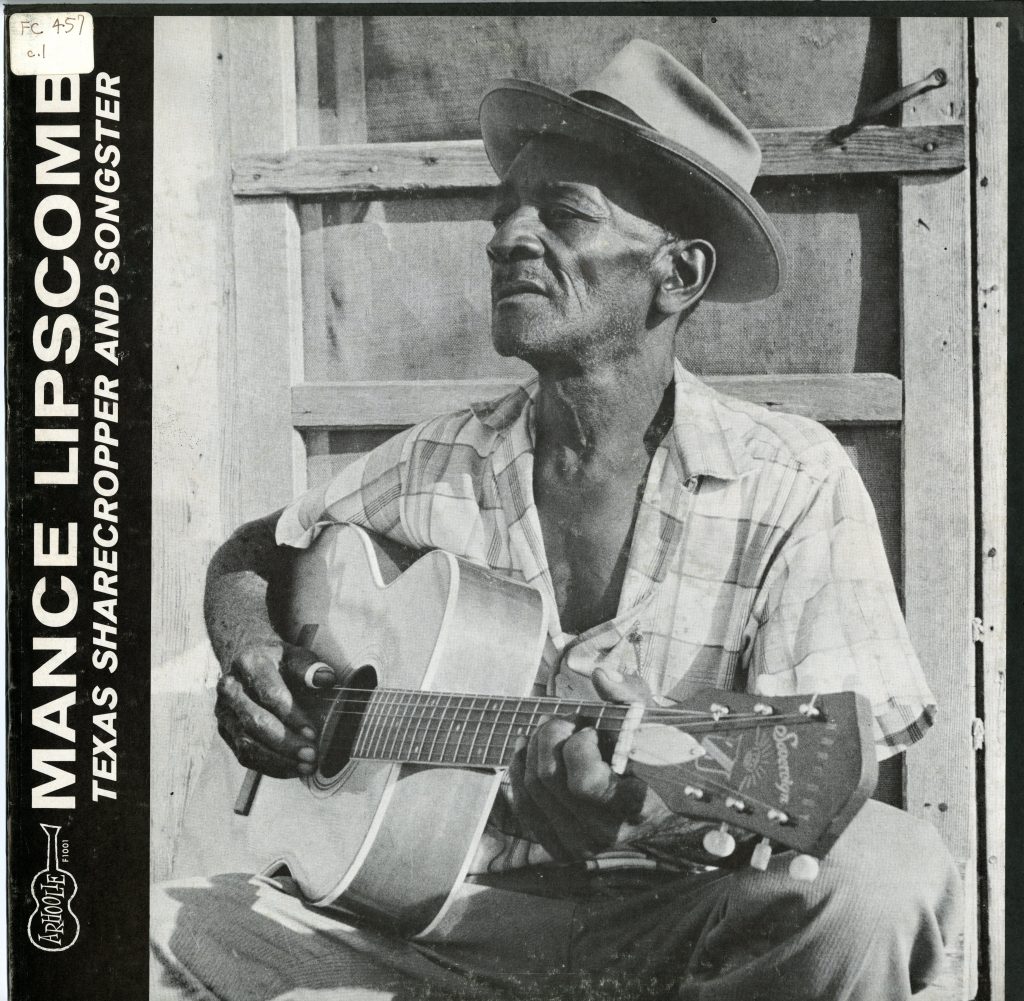
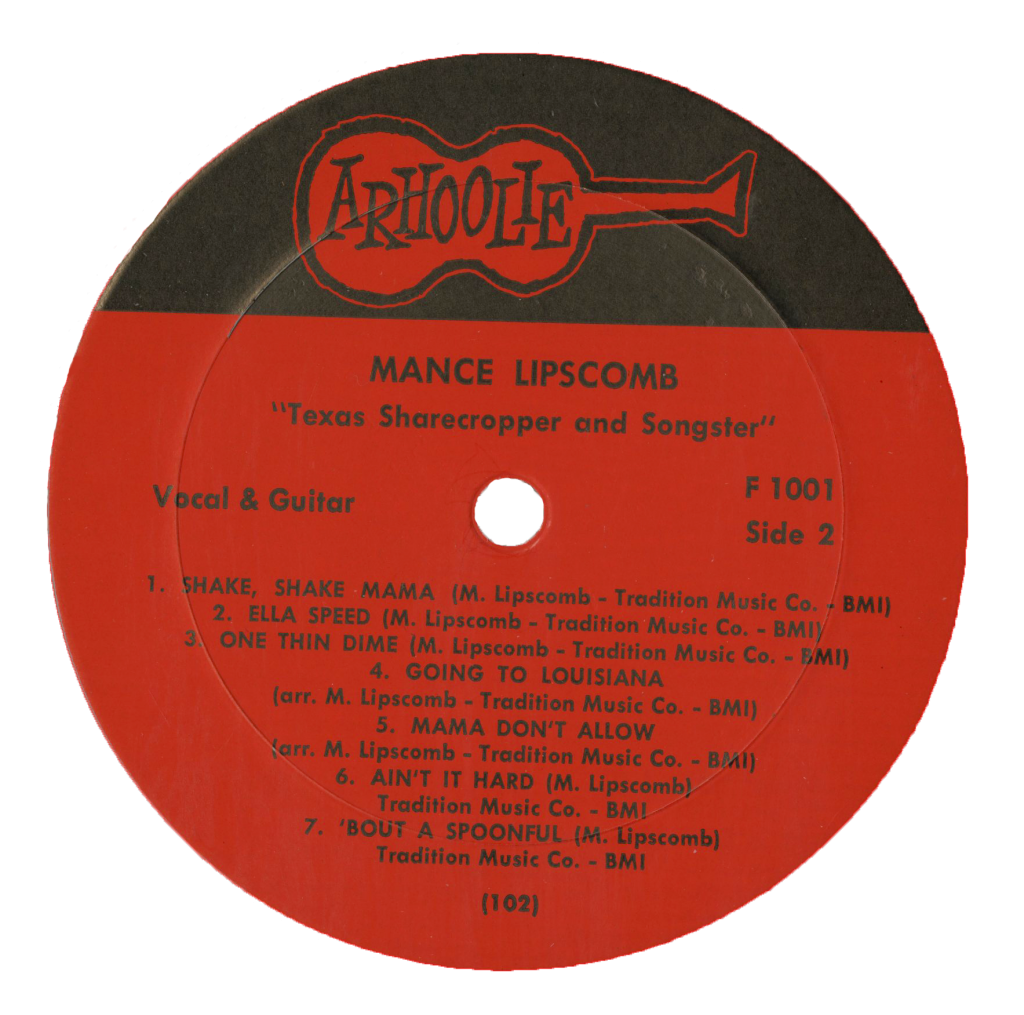
In 1959, Chris Strachwitz, a high school teacher living in California, set out for Texas hoping to meet and record one of his heroes, Lightnin’ Hopkins. Unable to find him, he resolved to return the next year, this time with a longer list of musicians to find and record. He had been buying and selling old 78 rpm records for several years, providing him with a little extra cash to buy some basic recording equipment. In 1960, with Mack McCormick’s help and a few tips from people along the way, he managed to meet Mance Lipscomb at his Navasota home. Texas Sharecropper and Songster is the product of recordings made that day, with the 65-year-old singing 14 songs he had picked up over a lifetime of playing music for friends, family, and both white and African-American dances. This impromptu session was Lipscomb’s first recording, and Strachwitz was initially unimpressed: “To be honest, I didn’t like his music that much – I love tough, nasty, old blues, and Mance was so pretty” (Goodwin, 1981). Of course, as Mance’s music elevated Arhoolie Records to a full-time venture, it must have grown on him: Lipscomb recorded 5 more albums for the label before his passing in 1976.
Listen to “Shake, Shake, Mama” from Side 2 of Texas Sharecropper and Songster:
The label

Arhoolie Records takes its name from a word for a field holler, more often referred to as a “hoolie.” Chris Strachwitz founded the label in 1960, ultimately establishing its headquarters in El Cerrito, California. Arhoolie primarily released original recordings of living musicians, whereas two of Strachwitz’s later ventures, Blues Classics and Old Timey Records, were devoted to reissues of older recordings. Chris Strachwitz remained at the helm for the label’s lifetime, continuing to record and release all varieties of music, and leading the transition into the CD and digital realms. In May of 2016, Smithsonian Folkways acquired the Arhoolie catalog, and Texas Sharecropper and Songster was one of the first batch of albums re-released by the new label owners.
The Founder
The founding of Arhoolie Records marked Chris Strachwitz’s first big step into the world of traditional music, but the label will be far from his only legacy. After moving to the United States from Germany in 1947, Strachwitz could hardly seem to stay away from the music. His passion for collecting 78s evolved into the Arhoolie Foundation, a nonprofit devoted to preserving and sharing his extensive collection. He started the Old Timey and Blues Classics labels soon after founding Arhoolie to release out-of-print recordings of blues and old-time musicians. Through Arhoolie, he published the Arhoolie Occasional and The Lightning Express, periodicals devoted to spreading information about blues music and recordings. Through a long-time friendship with documentary filmmaker Les Blank, he supported the production of documentaries on Arhoolie musicians like Mance Lipscomb and Lightnin’ Hopkins. Below is a segment from a 1981 interview by Strachwitz with Moses Asch, founder of Folkways Recordings, from the Archie Green Collection (20002).
Chris Strachwitz (CS): I’d like to get some of this on tape about your feelings in regard to reissuing old material or, that is, recordings that are really historical that have not been used by the major labels. You were certainly one of the first people to take a stand on this, weren’t you?
Moses Asch (MA): That’s right.
CS: What’s your attitude on this?
MA: Well, there’s a section in the Constitution of the United States, in which it says, “People have a right to know.” It’s part of the copyright, first copyright law of the land. And in there it says that no one is permitted, if they want the people to benefit, to take something out of circulation. If you buy a car, the manufacturer must have a replacement part as long as the car is operational. Otherwise, they lose all rights to the car. And I apply that same attitude to recordings. Once I feel that the manufacturer or the producer or the one that had the recordings originally issued the record, and then the record is not available, and it’s left out of their catalog, they throw that record into public domain and anyone can use it.
Listen to the full interview here. Digitization and streaming access to this recording were made possible through the SFC’s ongoing audiovisual preservation grant from the Andrew W. Mellon Foundation:
| SFC Audio Cassette FS-20002/11183 (digitized) |
Tape 28: Chris Strachwitz interviews Moses Asch, 1981Audiocassette
|
The local connection
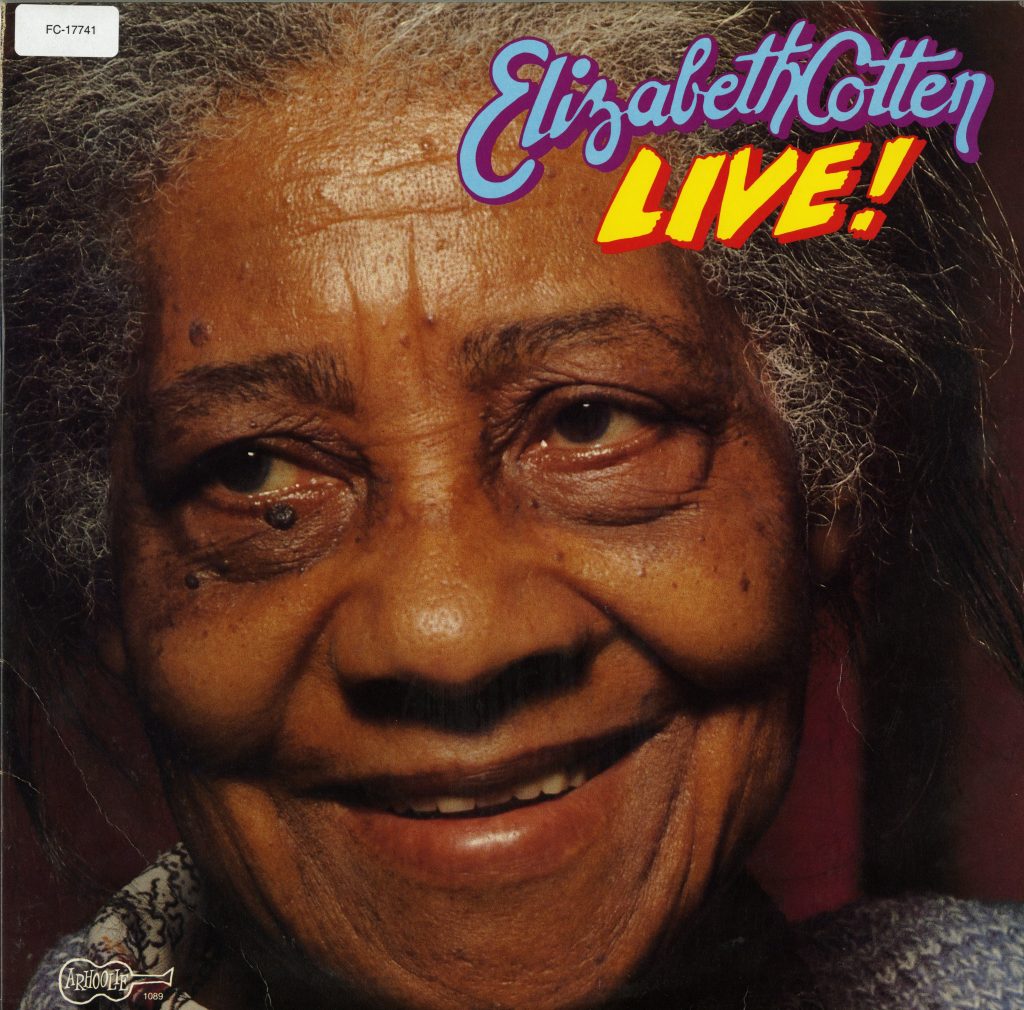
Elizabeth Cotten was born in Chapel Hill in 1893, the youngest of five children. After moving around the Southeast for many years, she settled as an adult in the Washington, D.C. area. Eventually, she came to work for the Seeger family of musicians, who, after hearing her play, helped expose her unique performance and songwriting abilities to the world. Most famous for her composition “Freight Train,” Cotten released just four solo albums in her lifetime: a series of three LPs for Folkways and Live!, a 1983 collection of live performances on Arhoolie Records.
Show me more!
The Southern Folklife Collection holds plenty of additional Arhoolie Records-related documentation, as well as a significant portion of the Arhoolie Records catalog on LP and other formats. Check out a few other documents and collections of interest below or search the collection yourself.
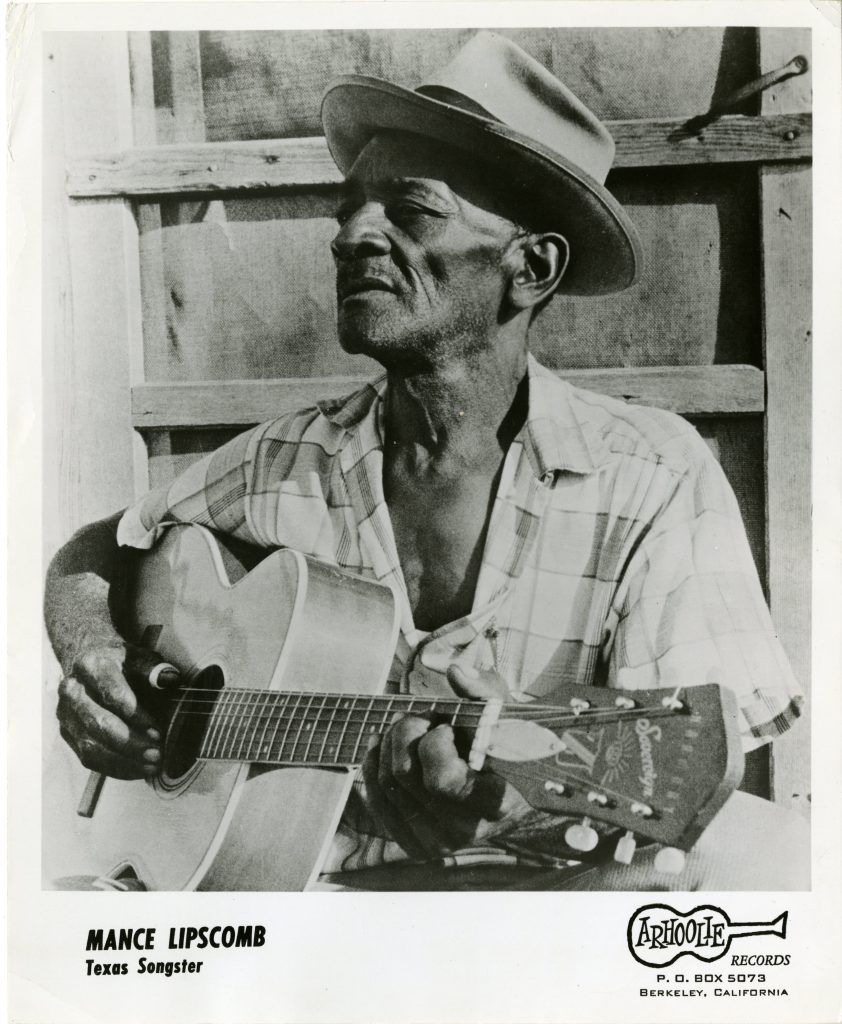
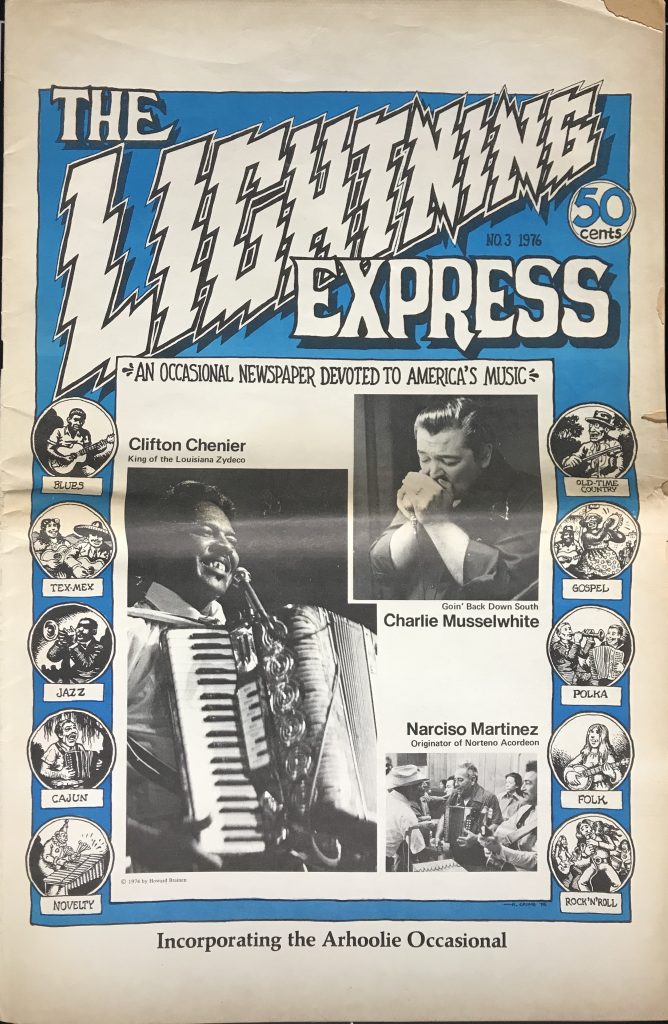
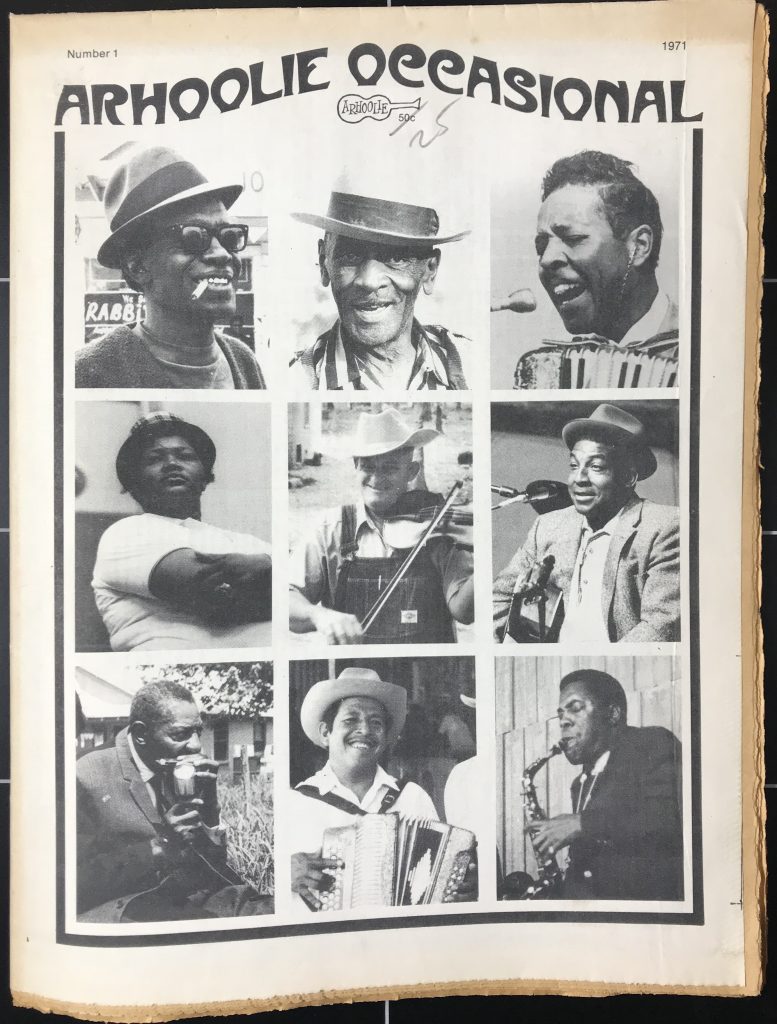
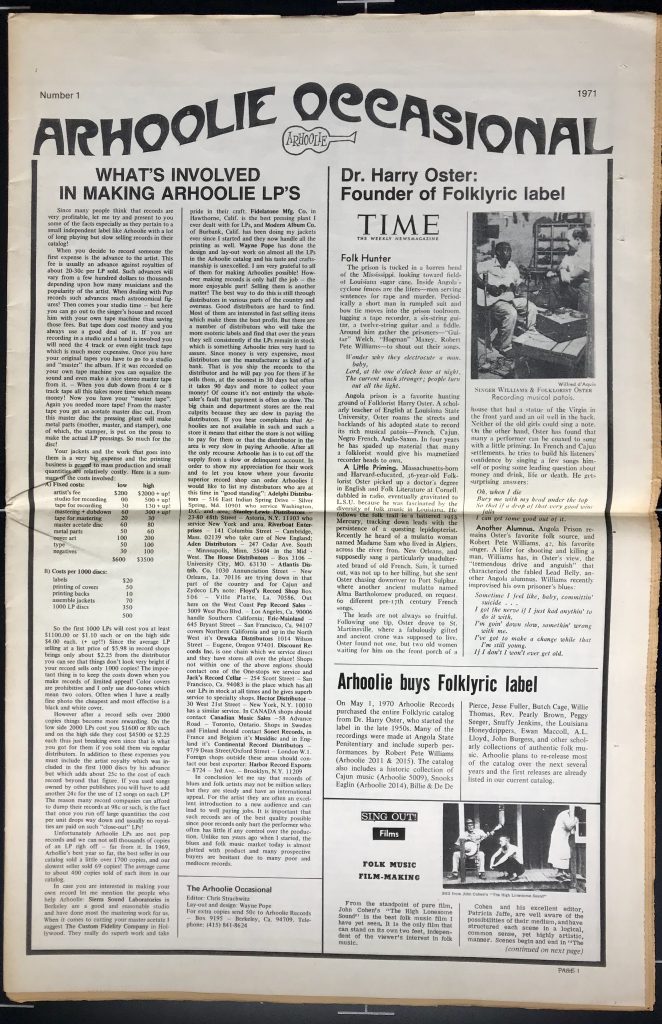
A witches' spell has been cast on SFC!
Happy Halloween from the Southern Folklife Collection at Wilson Special Collections Library!
A few items in the collection allude to witchcraft – we were delightfully frightened to find a selection of ghost stories told by Ollie and Roy Coleman in Iredell County, N.C., and caught on tape by folklore student Connie Jean Stone in March of 1975. This item can be found at call number FT-354 in the Connie Jean Stone Collection (20247).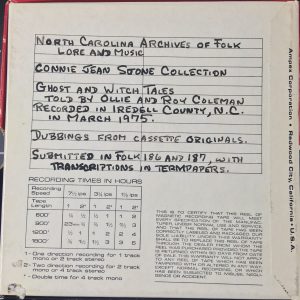
One creepy story tells the tale of a witch who seems to have cast a spell on a poor dairy cow, cursing and drying the bewildered bovine’s milk supply. Below you can find a clip of the recording, as well as transcription from the original field notes submitted by Ms. Stone. Notes are in folder 421 in the Southern Folklife Collection Field Notes (30025):
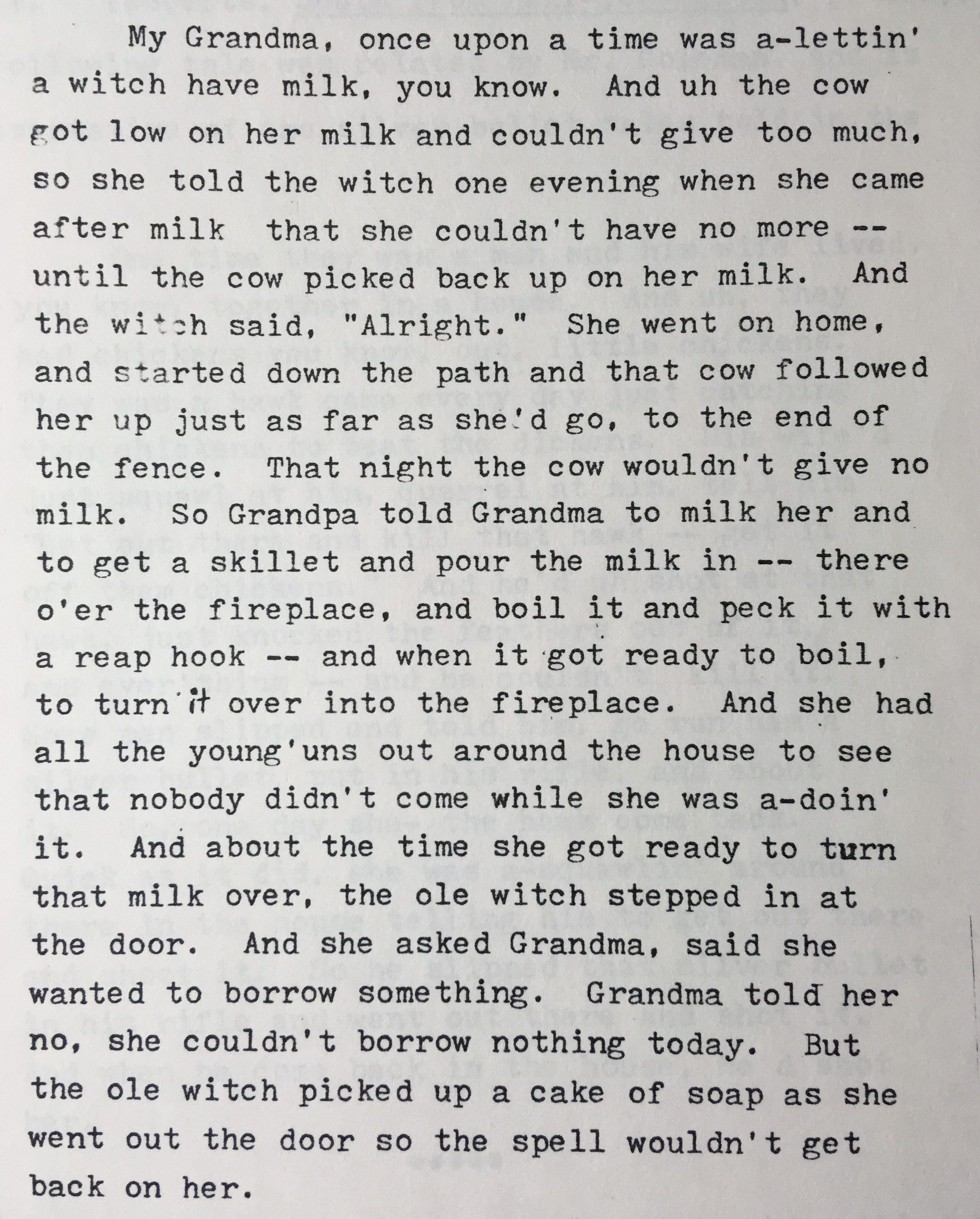
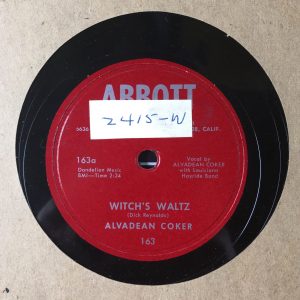
Another fun find from the collection is this 78rpm disc credited to Bakersfield country artist Alvadean Coker, entitled “Witch’s Waltz,” on the Abbott label, at call number 78-186. Alvadean’s countrified bad dream involves a grandmotherly spell cast due to bad behavior. Find a clip below:
We here at the SFC hope you have an enjoyable and safe Halloween!
World Day for Audiovisual Heritage 2018
 UNESCO, in cooperation with the Co-ordinating Council of Audiovisual Archives Associations (CCAAA) and other partners, has adopted 27 October as the World Day for Audiovisual Heritage to better focus global attention on the significance of AV documents and to draw attention to the need to safeguard them. The theme for this year’s celebration is “Your Story is Moving” described in a statement from the CCAAA Board.
UNESCO, in cooperation with the Co-ordinating Council of Audiovisual Archives Associations (CCAAA) and other partners, has adopted 27 October as the World Day for Audiovisual Heritage to better focus global attention on the significance of AV documents and to draw attention to the need to safeguard them. The theme for this year’s celebration is “Your Story is Moving” described in a statement from the CCAAA Board.
Every year millions of people record stories of all varieties on audiovisual media, ranging from narratives of everyday life to historic events. These moments are chronicled and stored each day on multiple formats and media, whether they are digital or analogue. How do we ensure that this ever-growing corpus that is our cultural history today is preserved and exists in the future? And how do we guarantee that this rapidly accumulating, collective moving story of ours is not lost, as much of our history on these fragile media has been over the past 150 years?
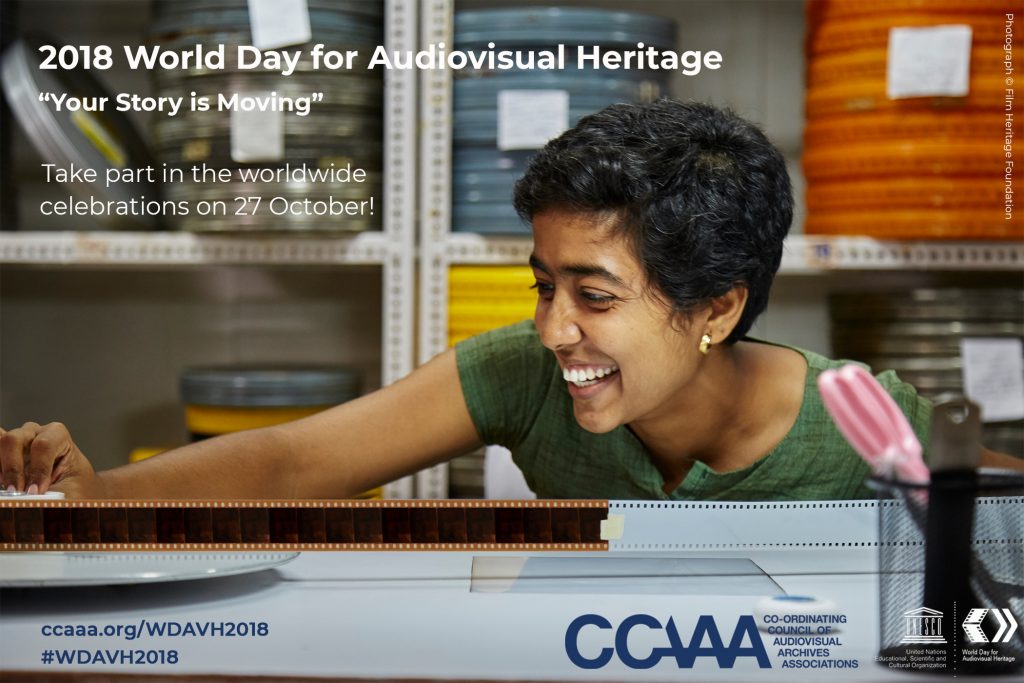 Reliably, thousands of archivists, librarians and preservationists around the world strive to make our world’s cultural heritage accessible and safeguard it for the future. In addition to their daily efforts to provide access to historic collections housed in established archives, archivists actively rescue collections in danger of loss or destruction due to poor climates, less than ideal storage conditions, political unrest or the economic challenges that many countries are confronted with daily.
Reliably, thousands of archivists, librarians and preservationists around the world strive to make our world’s cultural heritage accessible and safeguard it for the future. In addition to their daily efforts to provide access to historic collections housed in established archives, archivists actively rescue collections in danger of loss or destruction due to poor climates, less than ideal storage conditions, political unrest or the economic challenges that many countries are confronted with daily.
…stories move us emotionally. We see this every year on Home Movie Day, an event that provides a moment for publics around the world to bring their visual cultural heritage to archives and libraries, to view, sometimes for the first time in decades. As they see lost family members, loved ones and ancestors long gone come to life on the screen, tears flow, emotions are high, and these moments of our captured history transport us to new heights as our histories unfold before our eyes. History too comes to life through the power of the moving image and in sound recordings which connect us personally with those events and moments in time which have shaped our memories and who we are.
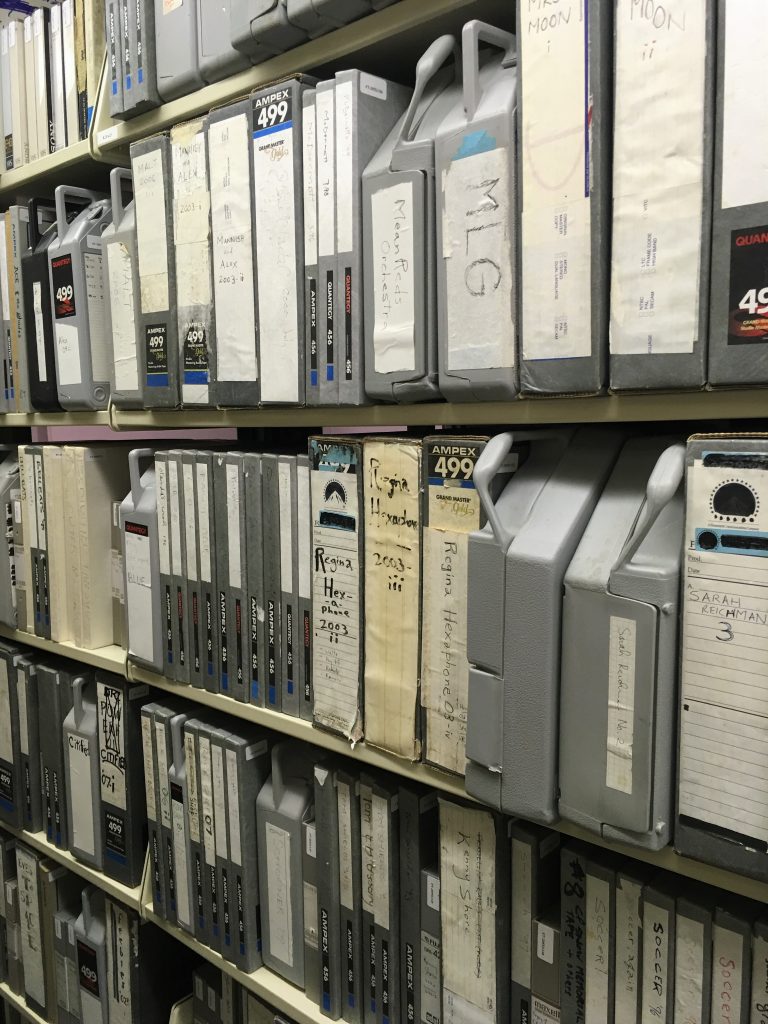
The Southern Folklife Collection at Wilson Special Collections Library and the University Libraries at UNC Chapel Hill have many moving parts working daily in our efforts to preserve and make accessible the hundreds of thousands of sound recordings, film and video housed in our special collections.
Thanks to a series of generous grants from the Andrew W. Mellon Foundation, the National Endowment for the Humanities, and the Grammy Foundation, the Southern Folklife Collection (SFC) has been able to complete a significant amount of digitization of its historic analog audiovisual holdings,
Most recently, UNC University Libraries received a $1.75 Million Grant from The Andrew W. Mellon Foundation, the largest ever made to the University Libraries, to allow the SFC to continue to preserve, digitize and share unique audio and moving image recordings. Collections targeted through the grant will come from the SFC and other curatorial departments within Wilson Special Collections Library, as well as six partner institutions across the state.
The regional partnerships will take place through the North Carolina Digital Heritage Center, a statewide digitization and publishing program based at Wilson Library. The State Archives of North Carolina, the Southern Appalachian Archives at Mars Hill University and the Forest History Society in Durham have already committed to work with the SFC.
In honor of the 2018 World Day for Audiovisual Heritage, we wanted to highlight some of the recordings recently digitized as part of one of our current projects. These selections are just a few from materials that have moved through this workflow in the last few month. As of Friday,. October 26, thanks to the work of our incredible Mellon Project Team, Wilson Library has 29,857 streaming AV files made from 23,322 preserved audio recordings, and 1,191 preserved video and film items.
Click through the links below to listen or to view to streaming AV files.
- From the North Carolina Foklife Media Project Collection (20106), field recordings of Johnston County blues artist and NC Heritage Award recipient Algia Mae Hinton, who passed away in Februrary of this year. Click through to listen to a streaming audio file.
| SFC Audio Open Reel FT-20106/6113 |
Algia Mae Hinton1/4″ Open Reel Audio Raw field recording used as source material for “North Carolina Traditions: Algia Mae Hinton: Blues Woman of Zebulon” (FT-20106/3413) |
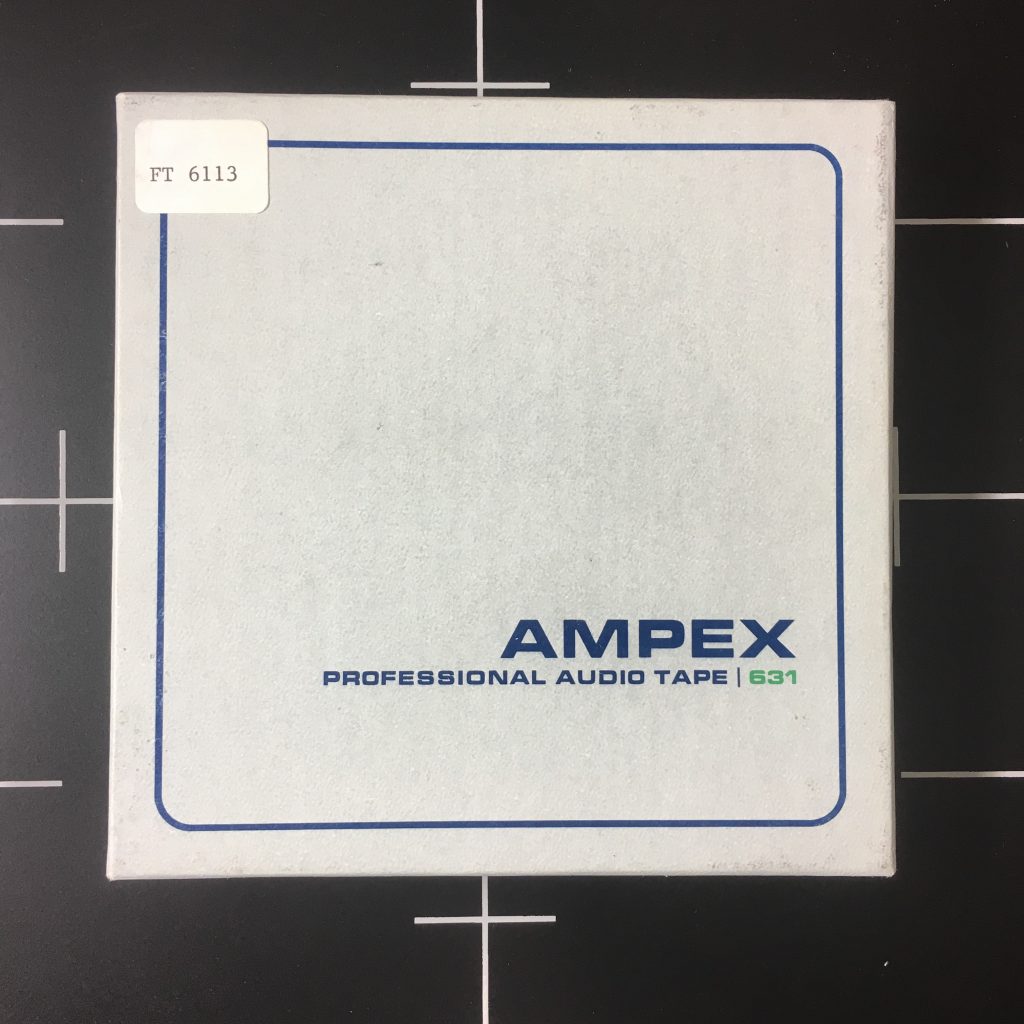 The North Carolina Foklife Media Project Collection (20106) consists of radio programs and associated field recordings, 1982-1983, produced by the North Carolina Folklife Media Project, a National Endowment for the Arts funded media project directed by folklorist Cecelia (Cece) Conway. As project director, Conway headed the production of North Carolina Traditions, an 8-part radio series featuring North Carolina based musicians that aired on WUNC, the flagship National Public Radio station for the Research Triangle area of North Carolina. The collection primarily consists of master recordings but also includes associated field recordings. Programs feature such artists as Etta Baker, a nationally-recognized African-American Piedmont blues guitarist from Caldwell County, N.C.; traditional Anglo-American fiddler Ike Rochelle, singer and accordion player Worth Mason, and fiddler Otha Willard, all from the coastal region of N.C.; Dorsey Dixon (1897-1968), Anglo-American singer and composer of textile and other songs from Richmond County; African-American gospel quartet the Golden Echoes of Granville County; Big Boy Henry (1921- ), African-American blues guitarist and singer from Beaufort County; Algia Mae Hinton (1929- ), African-American blues singer and guitarist and buck dancer from Johnston County; and John (“Frail”) Joines (1914- ), Anglo-American traditional storyteller from Brushy Mountain, Wilkes County.
The North Carolina Foklife Media Project Collection (20106) consists of radio programs and associated field recordings, 1982-1983, produced by the North Carolina Folklife Media Project, a National Endowment for the Arts funded media project directed by folklorist Cecelia (Cece) Conway. As project director, Conway headed the production of North Carolina Traditions, an 8-part radio series featuring North Carolina based musicians that aired on WUNC, the flagship National Public Radio station for the Research Triangle area of North Carolina. The collection primarily consists of master recordings but also includes associated field recordings. Programs feature such artists as Etta Baker, a nationally-recognized African-American Piedmont blues guitarist from Caldwell County, N.C.; traditional Anglo-American fiddler Ike Rochelle, singer and accordion player Worth Mason, and fiddler Otha Willard, all from the coastal region of N.C.; Dorsey Dixon (1897-1968), Anglo-American singer and composer of textile and other songs from Richmond County; African-American gospel quartet the Golden Echoes of Granville County; Big Boy Henry (1921- ), African-American blues guitarist and singer from Beaufort County; Algia Mae Hinton (1929- ), African-American blues singer and guitarist and buck dancer from Johnston County; and John (“Frail”) Joines (1914- ), Anglo-American traditional storyteller from Brushy Mountain, Wilkes County.
- From the collection Terry W. Rushin Documentary on A. R. Cole, 1969 (20402), a film made by Terry W. Rushin while he was a student at the University of North Carolina at Chapel Hill.
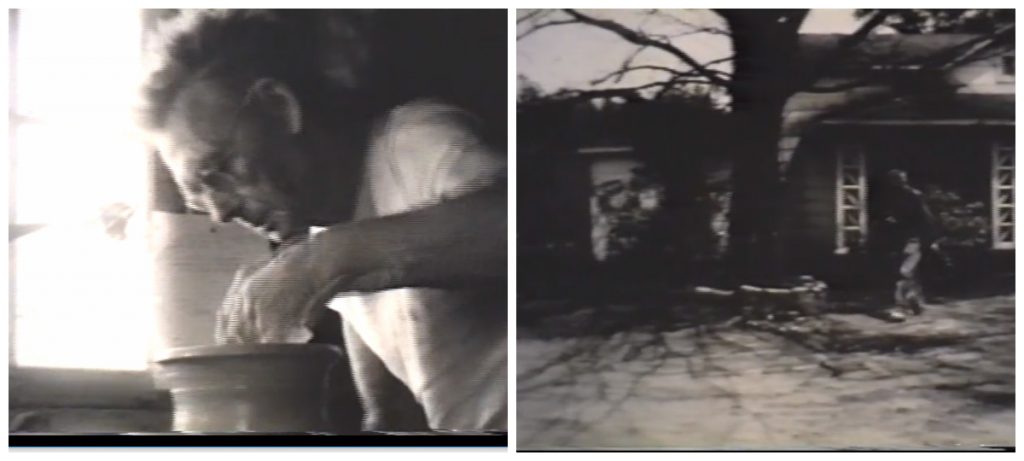
| Digital Folder DF-20402/1 |
A. R. Cole, Potter, 1969Digitized version of F-20402/1 with added title cards and countdown. Digital Folder includes original DVD files and an access copy. Processing information: The digital files were extracted from DVD-R. Original DVD files are dated October 2005. An access .mp4 file was made from the DVD files in August 2018 for viewing purposes. |
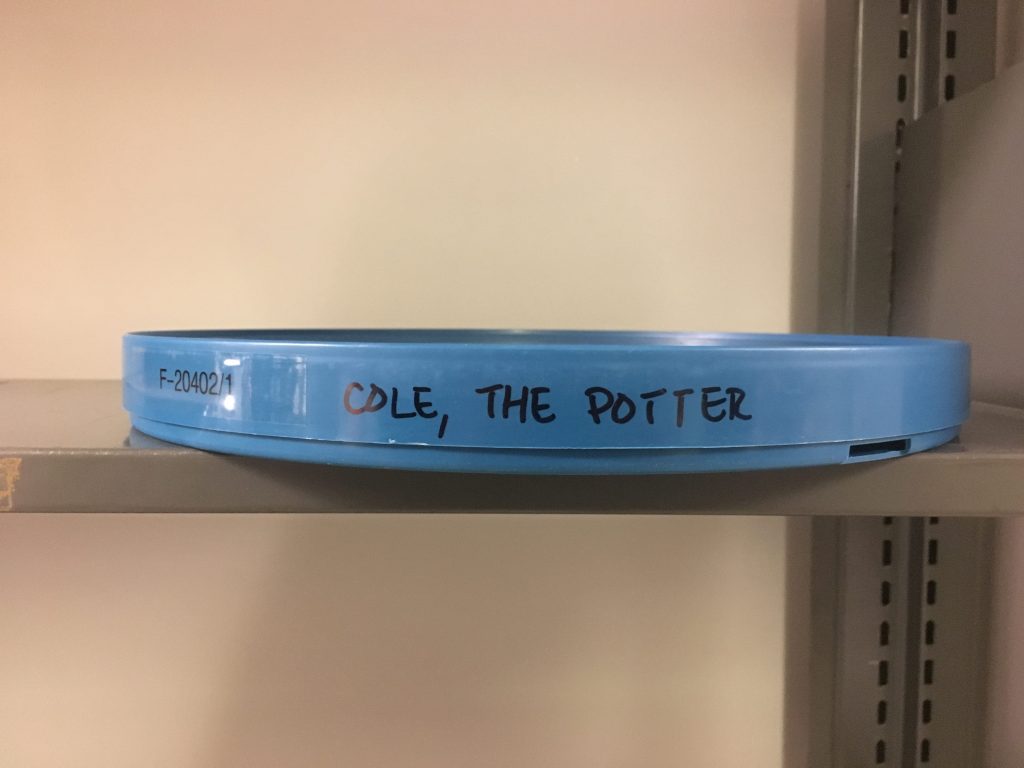 The twenty-five minute film, titled A. R. Cole, Potter, documents the artistic practice and pottery shop of Arthur Ray “A. R.” Cole, whose family has worked in the ceramic arts for more than three generations. The film is shot entirely at A. R. Cole’s pottery shop in Sanford, N.C. (Lee County, N.C.), and includes footage of A. R. Cole grinding clay and throwing a pot on the wheel, as well as scenes of A. R. Cole’s daughters, Celia and Neolia, storing and preparing pottery orders. The non-synchronous soundtrack of the film consists of audiotaped interviews with A. R. Cole and his daughters, who discuss the family’s long history with the ceramic arts, A. R. Cole’s use of natural, or raw materials, and the evolving business of the pottery shop. The collection contains a 16mm moving image print of the film, as well as a digitized version with added title cards and countdown.
The twenty-five minute film, titled A. R. Cole, Potter, documents the artistic practice and pottery shop of Arthur Ray “A. R.” Cole, whose family has worked in the ceramic arts for more than three generations. The film is shot entirely at A. R. Cole’s pottery shop in Sanford, N.C. (Lee County, N.C.), and includes footage of A. R. Cole grinding clay and throwing a pot on the wheel, as well as scenes of A. R. Cole’s daughters, Celia and Neolia, storing and preparing pottery orders. The non-synchronous soundtrack of the film consists of audiotaped interviews with A. R. Cole and his daughters, who discuss the family’s long history with the ceramic arts, A. R. Cole’s use of natural, or raw materials, and the evolving business of the pottery shop. The collection contains a 16mm moving image print of the film, as well as a digitized version with added title cards and countdown.
- From the Archie Green Papers (20002), Sarah Ogan Gunning “goes through a series of songs for potential educational use,” singing and speaking with Green at a union meeting at Solidarity House in 1964, possibly in Chicago.
| SFC Audio Open Reel FT-20002/15344 |
Sarah Ogan Gunning at Solidarity House1/4″ Open Reel Audio |
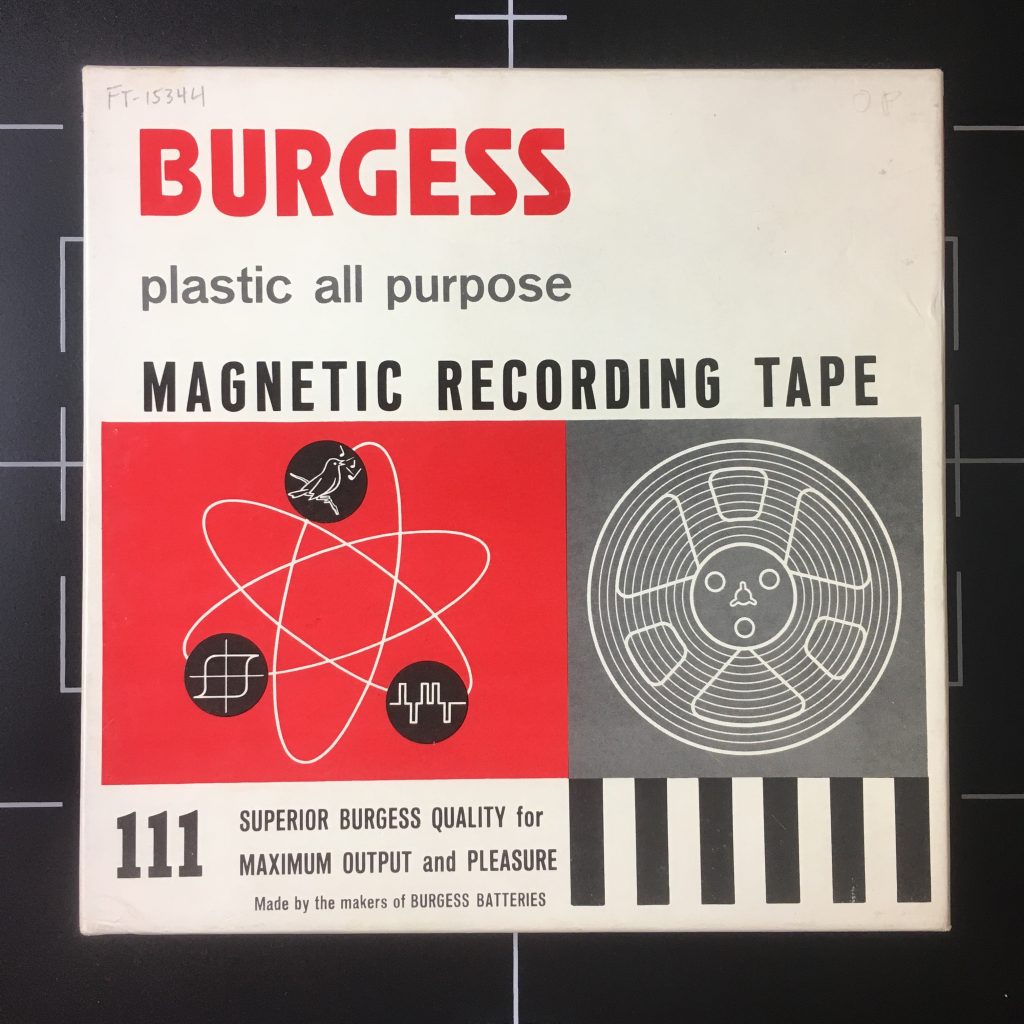 The Archie Green Papers also include correspondence, interviews, a discography, research notes, and other items relating to Green’s involvement in three performance events in Gunning’s life between 1964 and 1970. These include the production of a Folk-Legacy album, Girl of Constant Sorrow; Gunning’s performance at Carnegie Hall as part of the New York Folk Festival; and her appearance at the Newport Folk Festival. In his work with Gunning, Green collaborated to some extent with folklorist Ellen Stekert. Gunning was the half-sister of Aunt Molly Jackson and sister of Jim Garland.
The Archie Green Papers also include correspondence, interviews, a discography, research notes, and other items relating to Green’s involvement in three performance events in Gunning’s life between 1964 and 1970. These include the production of a Folk-Legacy album, Girl of Constant Sorrow; Gunning’s performance at Carnegie Hall as part of the New York Folk Festival; and her appearance at the Newport Folk Festival. In his work with Gunning, Green collaborated to some extent with folklorist Ellen Stekert. Gunning was the half-sister of Aunt Molly Jackson and sister of Jim Garland.
- From the Kip Lornell Collection (20024), Lornell interviews blues guitarist Lesley Riddle in 1973.
| SFC Audio Cassette FS-20024/1199 |
Interview with Lesley Riddle, 3 February 1973: tape 1 of 2Format: Audiocassette Recorded by Kip Lornell An extensive interview with Riddles, a blues guitarist from Kingsport, Tenn. About his own music and his relationship with older blues musicians and early country performers in the Kingsport area during the 1930s. A list of topics discussed by Riddles can be found in Folder 145 within the Southern Folklife Collection Field Notes Collection (#30025). |
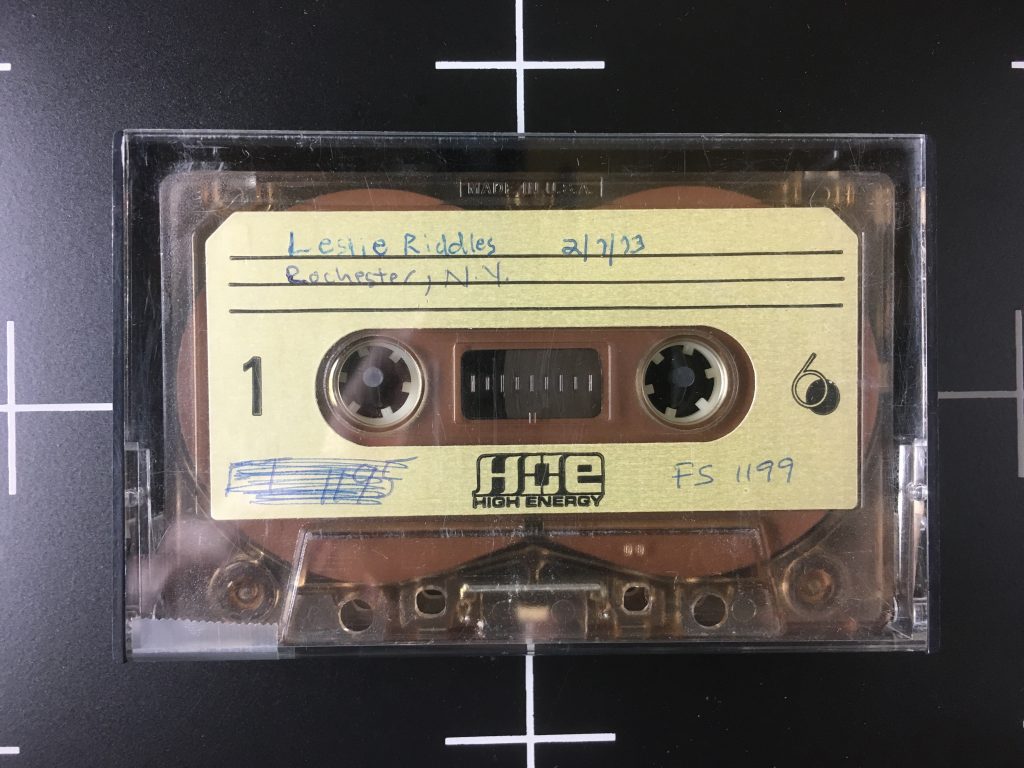 The Kip Lornell Collection consists of audio recordings, 1932-1976, created and compiled by ethnomusicologist, Christopher “Kip” Lornell, while he was a graduate student of Folklore at the University of North Carolina at Chapel Hill. The recordings are primarily field tapes featuring performances and interviews with African American blues and pre-blues secular musicians from North Carolina. Music performed includes blues, old-time songs and tunes, boogie-woogie, and gospel songs, played on banjo, guitar, and piano. Performers featured in the field recordings include Jamie Alston, Wilbert Atwater, Pernell Charity, George Letlow, Arthur Lyons, Lesley Riddle, Dink Roberts, John Snipes, Leo Strowd, Joe Thompson (1918- ), Odell Thompson (1911- ), Willy Trice (1910-1976), and Clarence Tross (1884-1977). Also included in the collection are an interview with Guy B. Johnson, University of North Carolina at Chapel Hill sociologist who studied African American musical traditions; interviews with the Chapel Hillbillies, an African American string band in the 1920s and 1930s; a lecture on folk medicine by Wilbert C. Jordan, medical doctor and sixth generation voodoo priest; a re-recording of Primitive Baptist singing by Elder Golden Harris and others, ca. 1932; and performances by Anglo-American fiddler and hammered dulcimer player Virgil Craven (1902-1980).
The Kip Lornell Collection consists of audio recordings, 1932-1976, created and compiled by ethnomusicologist, Christopher “Kip” Lornell, while he was a graduate student of Folklore at the University of North Carolina at Chapel Hill. The recordings are primarily field tapes featuring performances and interviews with African American blues and pre-blues secular musicians from North Carolina. Music performed includes blues, old-time songs and tunes, boogie-woogie, and gospel songs, played on banjo, guitar, and piano. Performers featured in the field recordings include Jamie Alston, Wilbert Atwater, Pernell Charity, George Letlow, Arthur Lyons, Lesley Riddle, Dink Roberts, John Snipes, Leo Strowd, Joe Thompson (1918- ), Odell Thompson (1911- ), Willy Trice (1910-1976), and Clarence Tross (1884-1977). Also included in the collection are an interview with Guy B. Johnson, University of North Carolina at Chapel Hill sociologist who studied African American musical traditions; interviews with the Chapel Hillbillies, an African American string band in the 1920s and 1930s; a lecture on folk medicine by Wilbert C. Jordan, medical doctor and sixth generation voodoo priest; a re-recording of Primitive Baptist singing by Elder Golden Harris and others, ca. 1932; and performances by Anglo-American fiddler and hammered dulcimer player Virgil Craven (1902-1980).
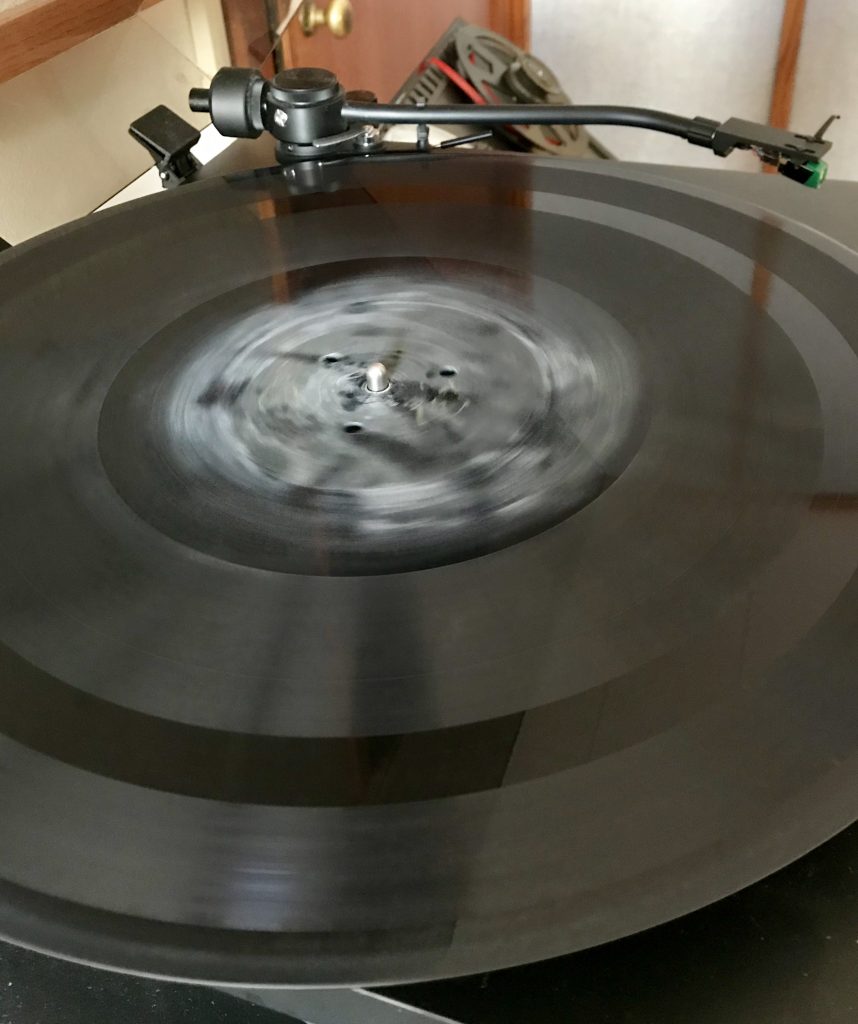
- And one last item from the Apollo Records Collection (20539). The Apollo Records Collection consists of 16″ master lacquer disc audio recordings, 1943-1958, affiliated with Apollo Records, a record company and label founded in New York City in 1944. Bess Berman, one of the few women executives in the recording industry, ran Apollo Records from 1948 until it closed in 1962. The company and label was known for their rhythm and blues, doo-wop, gospel, jazz, and rock and roll releases. Notable artists featured on the recordings found in the collection include jazz saxophonist and composer, Charlie Barnet; African American comedian and film actor, Stepin Fetchit; African American male vocal group, The Four Vagabonds; African American gospel singer, Georgia Peach; African American male vocal group, The Larks; female vocal group, The Murphy Sisters; country and western singer, Merle Travis; harmonica instrumentalists, The Three Harpers; and African American blues singer and guitarist, Josh White. The collection also includes scattered memos and tape logs found with the lacquer disc recordings. Conservators recently cleaned a number of discs for preservation and digitization, including this recording of the great pianist Ralph Font with his ensemble doing a wonderfully rhythmic version of “Habanera” from the opera “Carmen”
| Instantaneous Disc FD-20539/112 |
Ralph Font, “Habanera,” 25 June 194716″ Lacquer Disc Issue number: AP 3106 |
These clips offer but a glimpse into the Southern Folklife Collection’s preservation efforts. The public is encouraged to explore our finding aids for detailed inventories and description of archival collections and the UNC Libraries online catalog for materials of interest and request that they be preserved and made available for research. Feel free to contact the SFC with any comments or questions at wilsonlibrary@unc.edu. While you explore the content shared above, we hope think about institutions like the Southern Folklife Collection, Wilson Special Collections Library, the Library of Congress, and countless other archives and institutions that are working to preserve our aural and visual history in communities around the world. 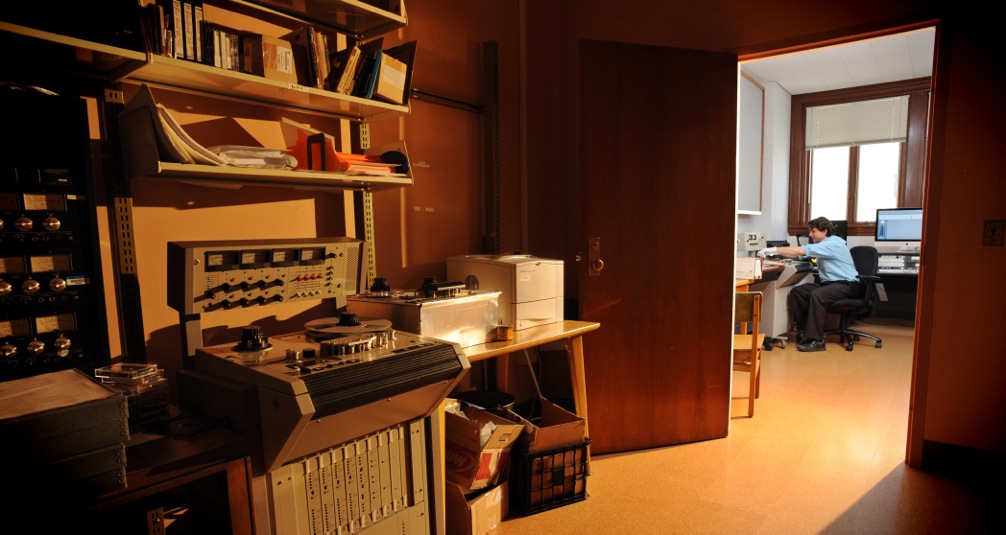
Now Available for Research: Duck Kee Studio Collection

This week we published a new finding aid for the Duck Kee Studio Collection (20553), which contains multi-track and mixdown studio master tapes of Triangle favorites recorded at Duck Kee Studio from 1984-2009. Recordings are on 2″ open reel, 1/2″ open reel, and ADAT analog formats.
Duck Kee Studio was founded by musician and recording engineer, Jerry Kee (Dish, Regina Hexaphone, Cat Toy), who began recording local bands out of a house in Raleigh in the late 1980’s. In 1995, Kee relocated the studio to Mebane, N.C., its eighth location.
The studio has close ties to the Triangle’s indie rock music scene, recording early work by Archers of Loaf, Tift Merritt, Pipe, Polvo, and Superchunk, among others. Kee has historically relied on analog recording equipment, including a 4-track and later a 24-track tape machine.
In January 2018, Duck Kee Studio no. 8 was tragically damaged in a fire. Kee recently talked with WUNC’s “Songs We Love” podcast about the fire, which destroyed his recording equipment and severely damaged open reel tapes stored at the studio.
Thankfully Kee donated a large batch of master tapes (about 175 in total) to the Southern Folklife Collection before the studio fire. These tapes are featured in the newly published finding aid and include recordings by local acts, like Cobra Kahn, Dish, Eyes to Space, Jennyanykind, Malt Swagger, Picasso Trigger, Portastatic, Queen Sarah Saturday, Regina Hexaphone, Schooner, and Superchunk.
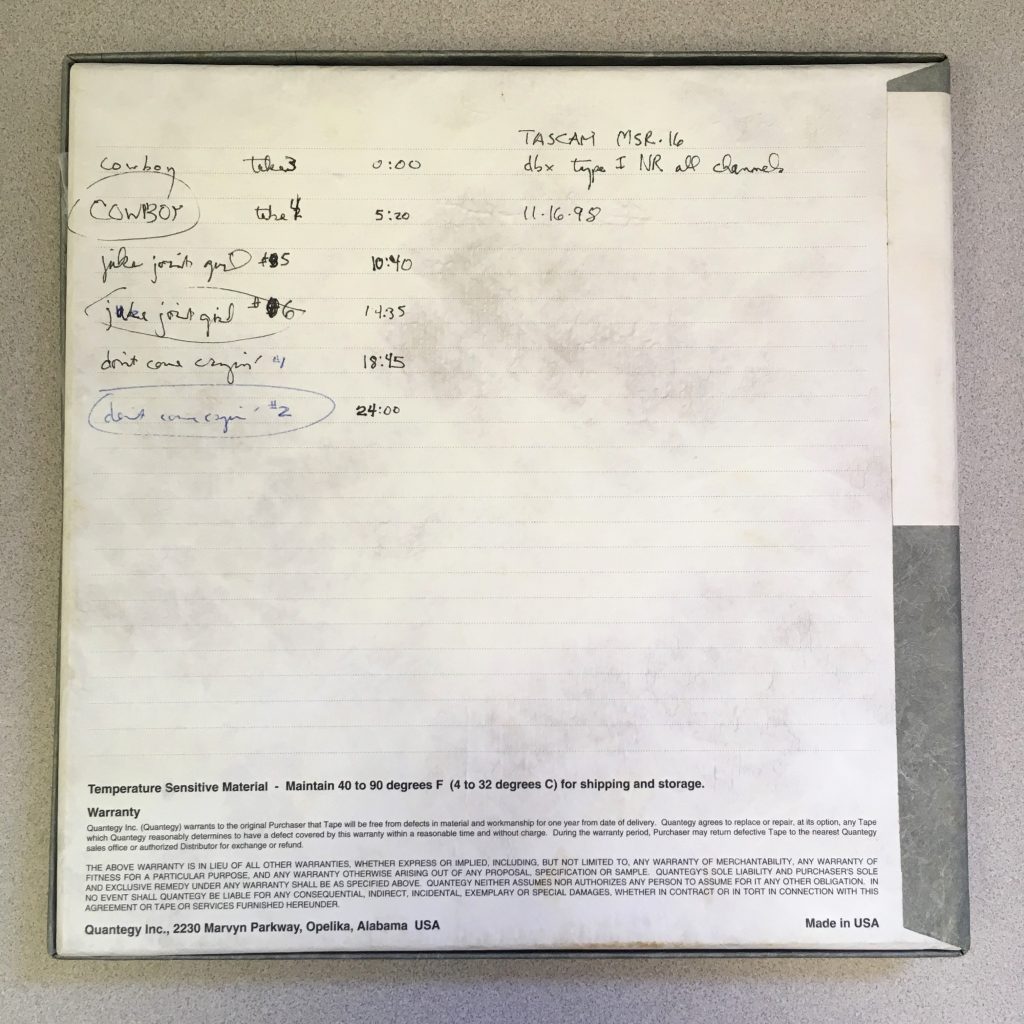
The collection also includes an early recording of Tift Merritt with her full band, dubbed The Carbines, which included Margaret White on fiddle, Christopher Thurston on bass, Greg Readling on keyboard and pedal steel, and Zeke Hutchins on drums. Above is an image of their fall 1998 recording that resulted in a self-released 7-inch single featuring “Juke Joint Girl” and “Cowboy” (1999, Oil Rig Music).
Duck Kee Collection materials are available for research on-site at Wilson Special Collections Library. The collection is a nice addition to the SFC and its growing collection of materials related to the Triangle’s independent music scene (Ron Liberti Collection, Merge Records Collection, Tift Merritt Collection, and Craig Zearfoss Collection, to name a few).
Remember those fire damaged tapes I mentioned earlier? About 170 of them arrived at SFC this past spring via Jerry Kee. We are currently assessing the tapes conditions and crafting a plan of attack to help preserve and provide access to the them. Stay tuned. Sending lots of positive thoughts and energy Jerry Kee’s way. We are hopeful that most of the damaged tapes can be salvaged.
And last but not least, shout-out to our graduate research assistant, Rae Hoyle, who helped process the Duck Kee Studio Collection – thank you, Rae!
Field recordings and Folklife
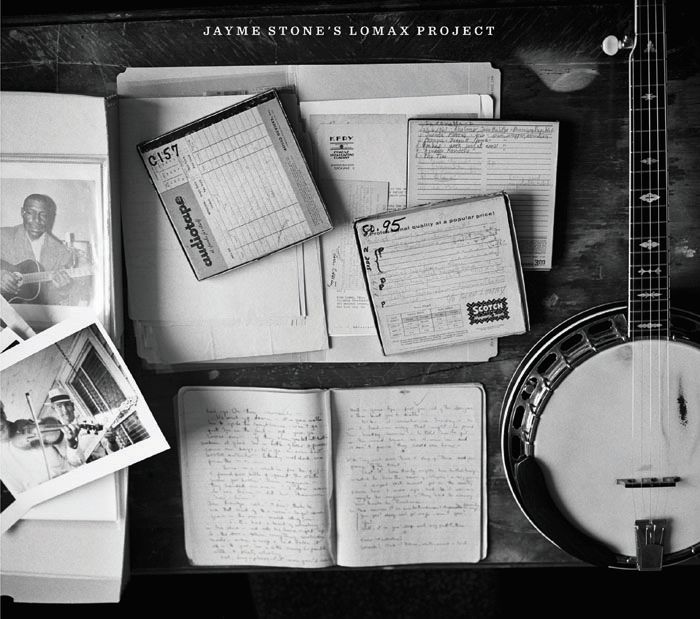
Our friends at The ArtsCenter in Carrboro are hosting banjo musician Jayme Stone and his Folklife Project on Friday, April 27. Continuing the practice from 2014’s Lomax Project, CD-15287 in the Southern Folklife Collection, Stone and his collaborators continue to look to recordings made by folklorists and field recorders for songs to reimagine. While Alan Lomax made recordings across the globe, opening up the source material allows for Stone to explore the work of other folklorists and song collectors, presenting that work to new listeners.
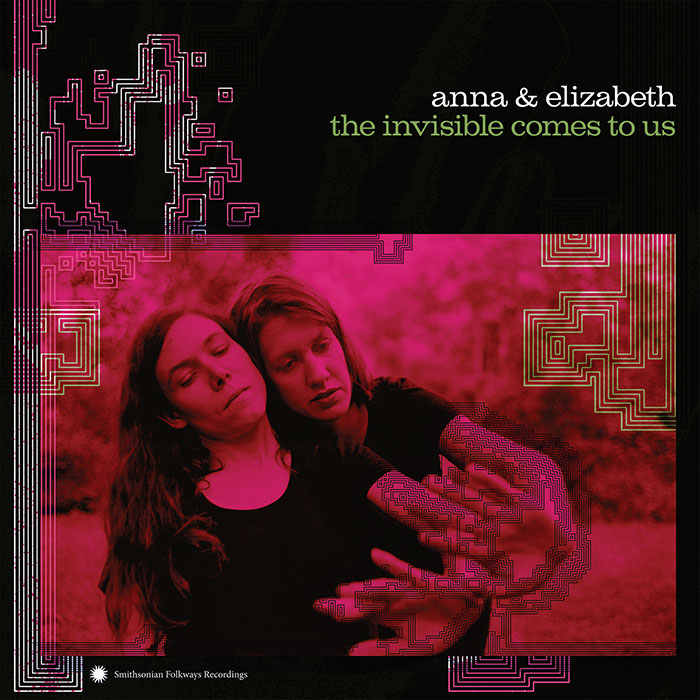 The Smithsonian Folkways recording artists Anna & Elizabeth have also looked to archival recordings for source material, and during a recent performance at Chapel Hill’s Nightlight, the duo performed along with a field recording of Margaret Shipman singing “Jeanno and Jeanette” recorded by Helen Hartness Flanders, a folklorist from Vermont whose collection is at Middlebury College Davis Family Library. The Flanders collection is digitized and you can hear her recordings of Margaret Shipman streaming online via the Internet Archive
The Smithsonian Folkways recording artists Anna & Elizabeth have also looked to archival recordings for source material, and during a recent performance at Chapel Hill’s Nightlight, the duo performed along with a field recording of Margaret Shipman singing “Jeanno and Jeanette” recorded by Helen Hartness Flanders, a folklorist from Vermont whose collection is at Middlebury College Davis Family Library. The Flanders collection is digitized and you can hear her recordings of Margaret Shipman streaming online via the Internet Archive
The Southern Folklife Collection is the repository for thousands of field recordings and many of these stream online thanks to the Audiovisual Preservation and Access Team and grant support from the Andrew W. Mellon Foundation. I hope these recordings can inspire artists to create new and reassembled works as well. Remember that Wilson Library does offer fellowships!
There are well over 20,000 streaming audio recordings streaming online through the Southern Folklife Collection finding aids. Field recordings are made in the field, taking the listener to a specific time and place. With that in mind I selected a few recordings made in North Carolina. Be sure you click through to the streaming file to listen.
- For some old time inspiration, the Paul Brown Collection (20382) includes many recordings made at the home of fiddler Benton Flippen. Audio cassette FS-6582 was recorded 22 October 1980 along with Paul Brown and Paul Sutphin.
- For some blues, the Joan Fenton Collection (20382) includes open reel tape recordings she made of Howard Cotten, bluesman and storyteller from Goldston, NC. Audiotape FT-0891 was made 6 August 1976 and includes Mr. Cotten performing the Piedmont blues classic “Step it Up and Go” as well as sharing memories about Blind Boy Fuller.
- Field recordings in the Artus Moser Papers (20005) were made on instantaneous discs. Listening through some of those recordings recently, I fixed on disc FD-0705. Songs on the recording, including a driving and lightly swinging version of “John Henry.” are performed by an unidentified female singer, recorded to instantaneous disc by Artus Moser in the 1930s.
If you are interested in other field recordings in the Southern Folklife Collection and Wilson Library, contact us anytime! And remember you can hear Jayme Stone’s Folklife interpret field recordings at The ArtsCenter this Friday.
Martin Luther King, Jr. speaking from Birmingham, 1963
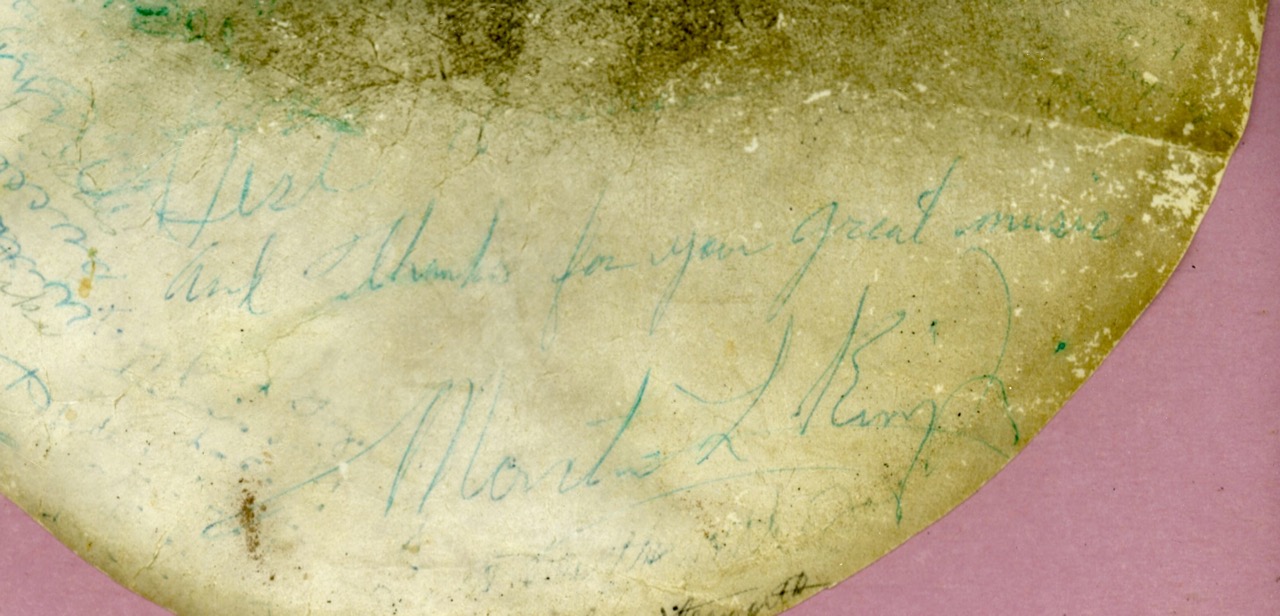 Like many of you today, we remember Dr. Martin Luther King, Jr. and his legacy by turning to his own voice and words. In that spirit we’d like to share a clip of a speech Dr. King made to a group of organizers and activists at a Mass Meeting in Birmingham, Alabama, April 1963, digitized from open reel tape recording FT-20008/9832 in the Guy and Candie Carawan Collection (20008). He addresses the audience with seriousness and humor, inspiring them to continue to fight for the cause and lifting them up in solidarity before they all join together to sing “We Shall Overcome”. Listen to those clips here or read the transcription below:
Like many of you today, we remember Dr. Martin Luther King, Jr. and his legacy by turning to his own voice and words. In that spirit we’d like to share a clip of a speech Dr. King made to a group of organizers and activists at a Mass Meeting in Birmingham, Alabama, April 1963, digitized from open reel tape recording FT-20008/9832 in the Guy and Candie Carawan Collection (20008). He addresses the audience with seriousness and humor, inspiring them to continue to fight for the cause and lifting them up in solidarity before they all join together to sing “We Shall Overcome”. Listen to those clips here or read the transcription below:
[Speaking: Rev. Charles Billups]:
Now let us join hands and let us sing together, “We Shall Overcome”
[singing]
We shall overcome
We shall overcome
We shall overcome someday,
Oh deep in my heart
I do believe
We shall overcome someday.
You can hear the entire tape, as well as interviews and comments from participating student actives, streaming through the Southern Folklife Collections digital collections here: FT-20008/9832. Digitized recordings in the Guy and Candie Carawan Collection have been made accessible through streaming thanks to SFC’s ongoing audiovisual preservation grant from the Andrew W. Mellon Foundation.
The photo above is a closeup of Guy Carawan’s banjo head (pictured in full below), signed by Martin Luther King, Jr. as well as other leaders like Rosa Parks, Mahalia Jackson, Septima Clark, Fred Shuttlesworth and more. If you are interested in other archival materials related to Martin Luther King, Jr. you may want to read an article from today’s News and Observer, April 4, 2018, “Martin Luther King, Jr. and Chapel Hill’s Jim Crow Past,” by journalist Mike Ongle. The article based on research across the collections at Wilson Special Collections Library and details Martin Luther King’s visit to Chapel Hill and UNC Chapel Hill in May of 1960, including photos from the John Kenyon Chapman Papers (05441) .